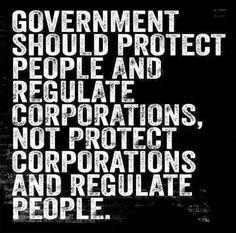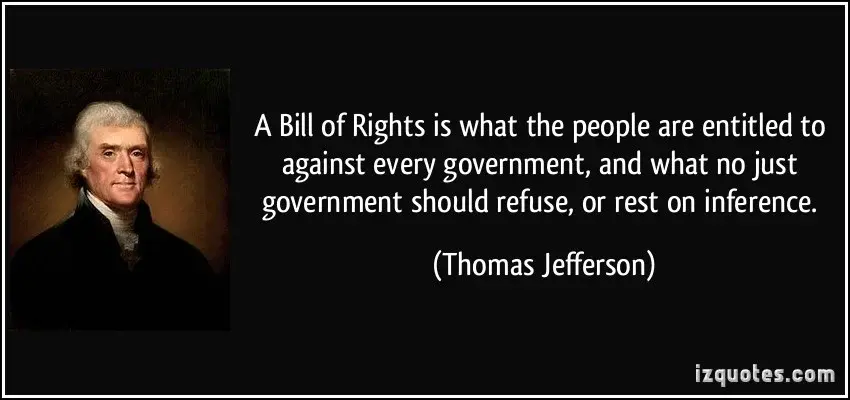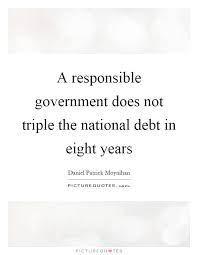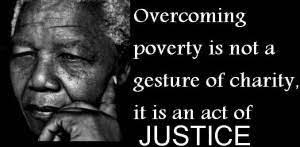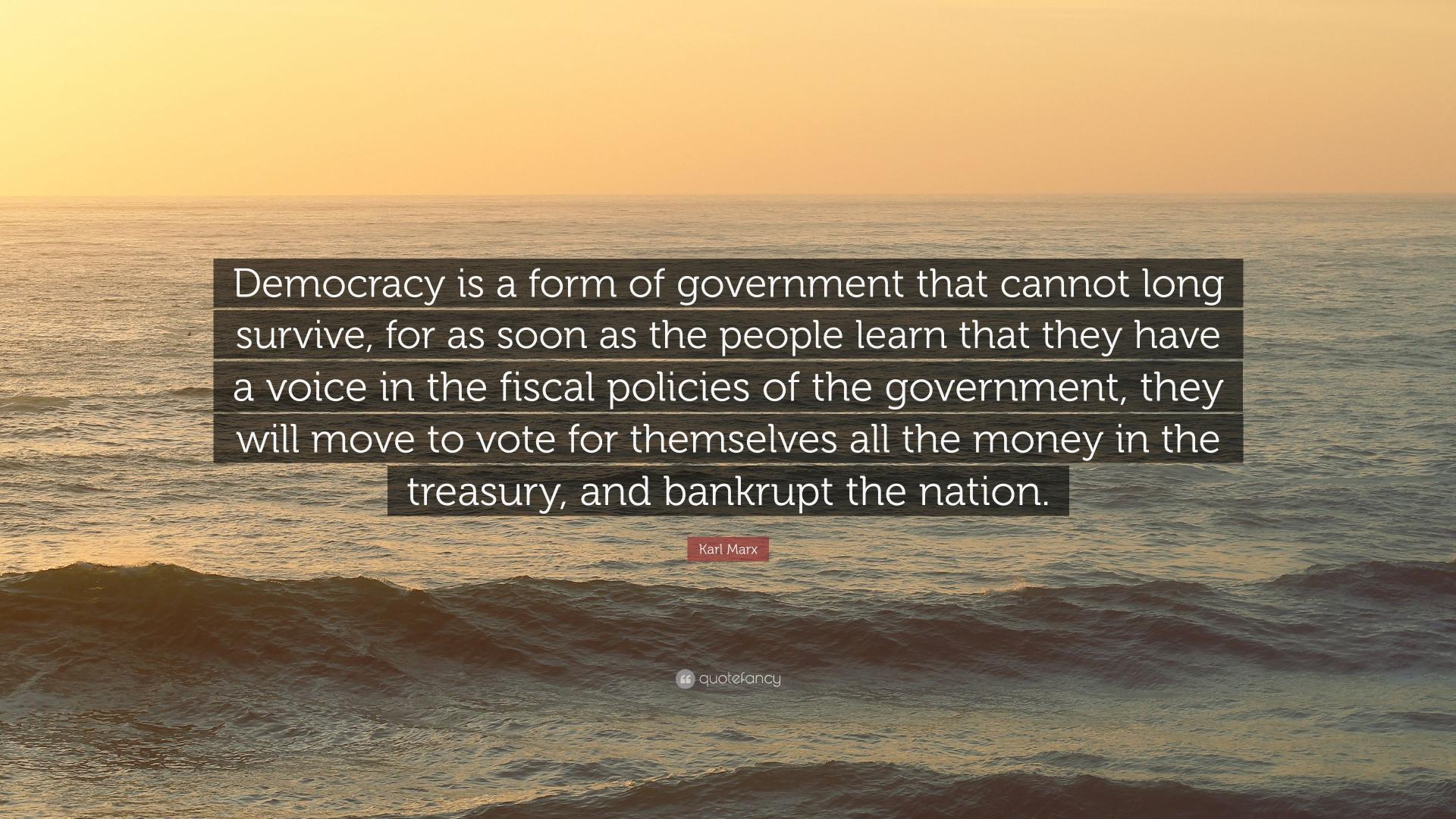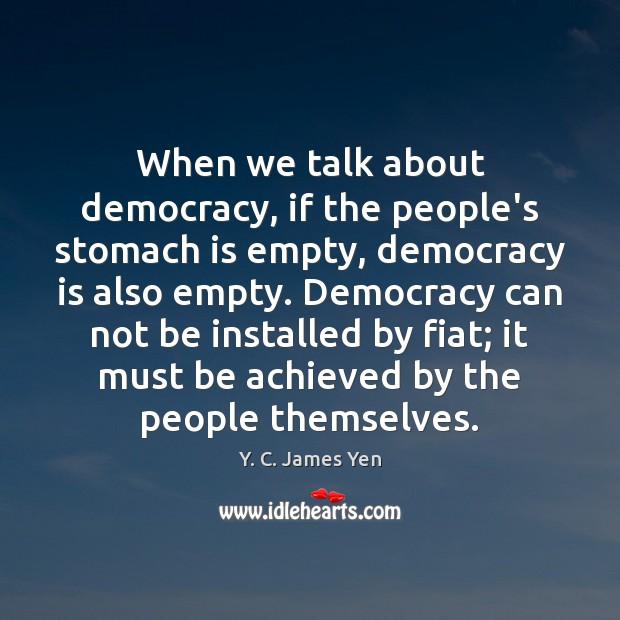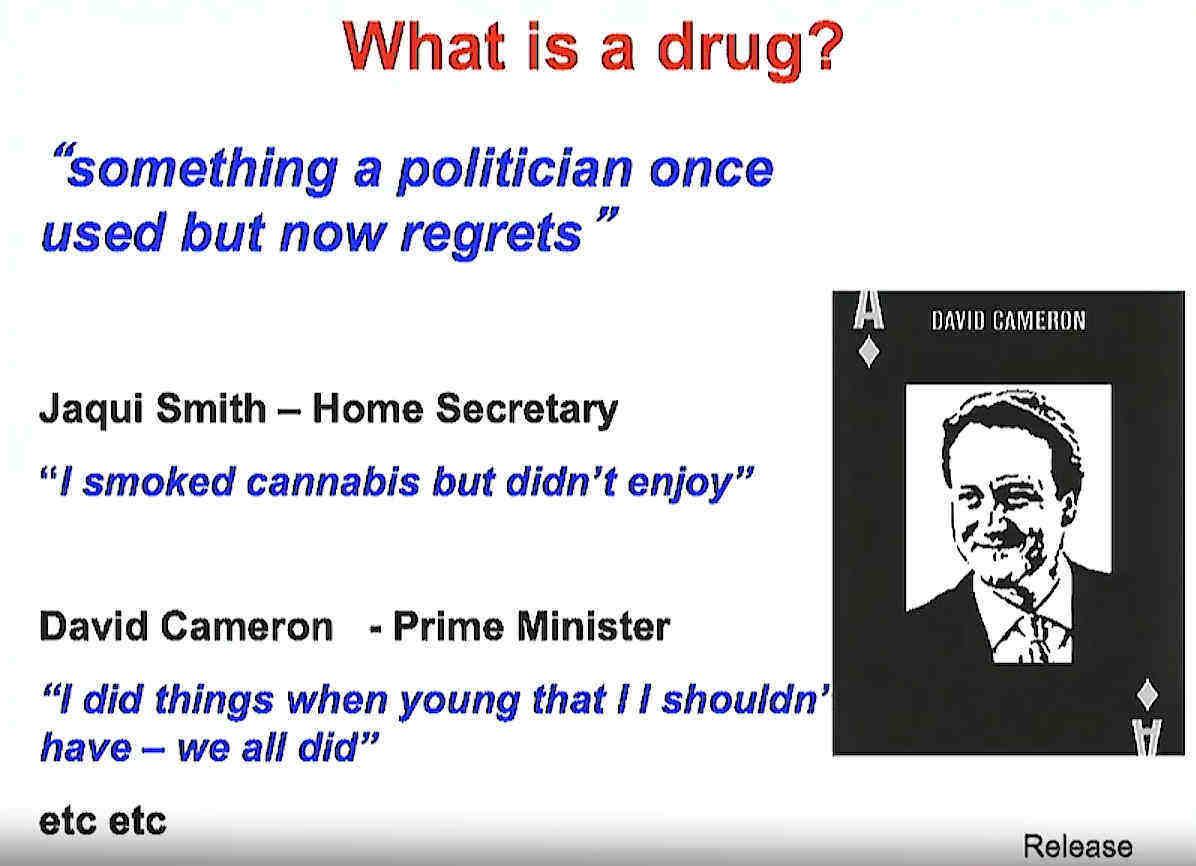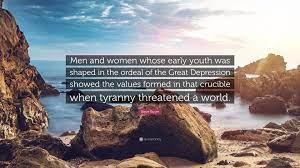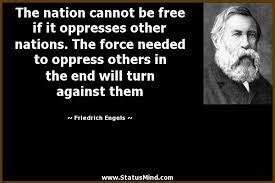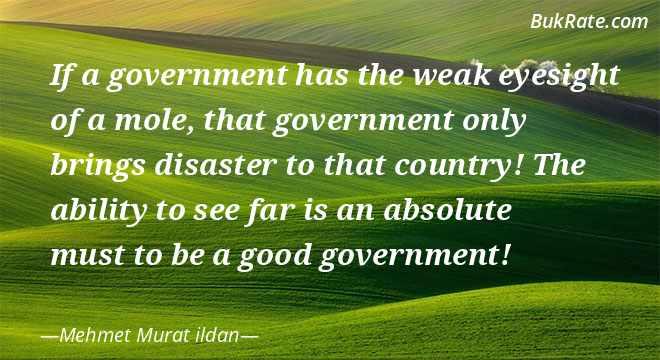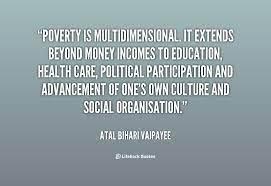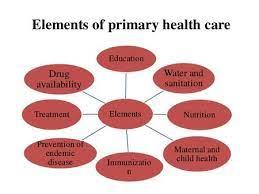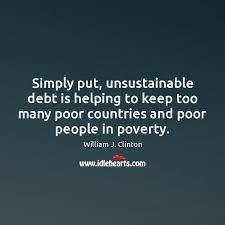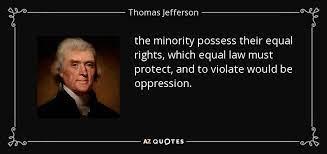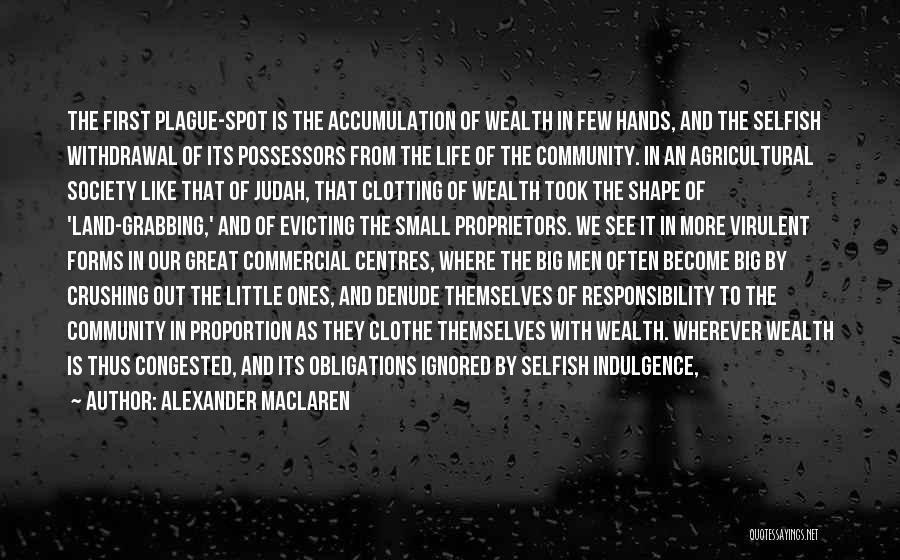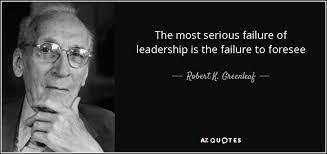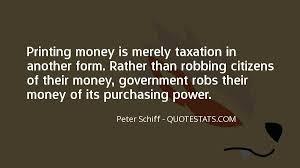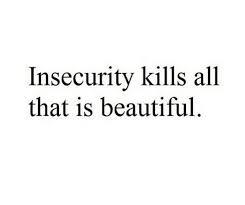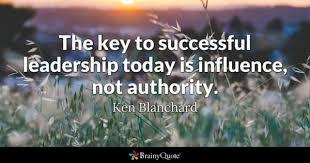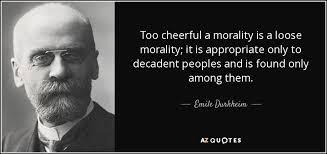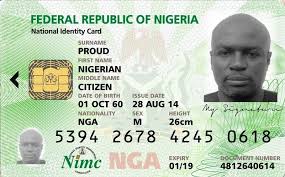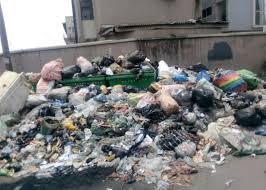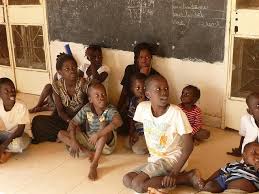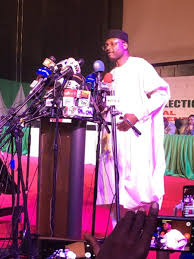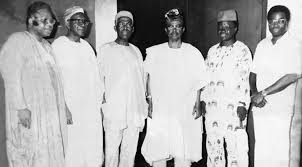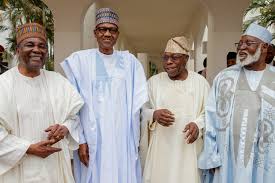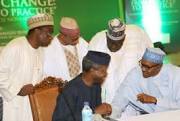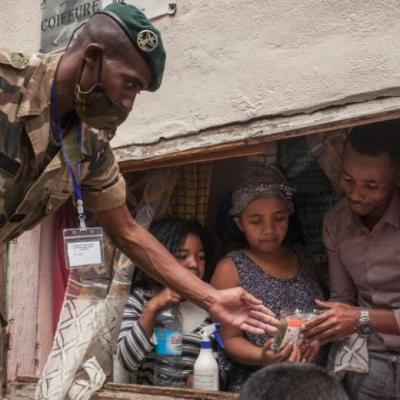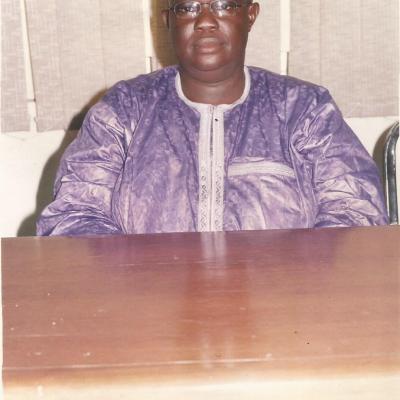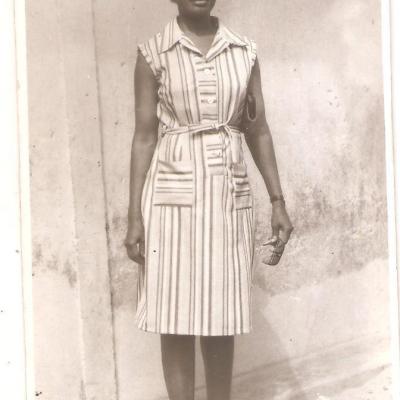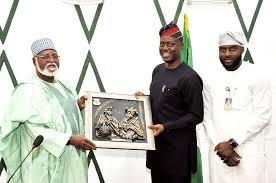Solomon's Column

This category is all about the Nigerian government and its people. It takes a look at the economy, politics and all spheres of human endeavour in the country.
-
Law Enforcement: The Reactionary Approach
- By solomon2day
- On 09/08/2021
- In Solomon's Column
Impunity in cities, towns, and villages across Nigeria revolves around the fact that that responsible for law enforcement has been heavily compromised.
Perhaps, this is the price to be paid to achieve self-centered goals with the coercive powers of Those-in-Charge in a depressed economy.
The obsessive lure of power seems too attractive for those involved to be committed to democracy. An unspecified number of citizens are now used as proxies.
The Nigerian society is now that of guns, terrorism, kidnappings, killings(for ritual purposes inclusive), contempt for the rule of law, and other violent crimes.
The reactionary approach to law enforcement and insecurity has resulted in the massive traumatization of the psyche of Nigerians; considering the increasing rate of abductions and killings in the land. In saner climes, the structure of the national security system was fumigated, overhauled, and remodeled. This singular action ensured the exit of those lacking in integrity and credibility.
In saner climes, the structure of the national security system was fumigated, overhauled, and remodeled. This singular action ensured the exit of those lacking in integrity and credibility.
Sadly, today, state actors are not working towards leaving behind enduring legacies, instead, their energy dissipation points to monetary inducement for erstwhile credible commentators in a desperate bid to cover up the rot in the midst of non-performance. -
Lesser Figures and History
- By solomon2day
- On 27/07/2021
- In Solomon's Column
Nigeria presently operates a multi-party political system, but n emerging desire is for a single party to thrive in the country's political firmament, while arm twisting, blackmail, and intimidation are the applications for membership drive.
Mao of China attained his goals through despotic means.He did not, however, terrorize citizens, but rather ensured that the downtrodden were lifted up in every sphere of human life.
During Mao's reign, thousands of Chinese died of starvation and inhuman labor. And he justified this cruelty to humanity as the price that had to be paid for the re-education of the Chinese. The re-education also included the extermination of the heroes of the civil war and the old party chieftains.
In Nigeria, state actors breach the constitution to achieve desired goals, even though the desired goals are not in tandem with the expectation of Nigerians.
For the country not to follow the tragic history of old Yugoslavia, justice, equity, tolerance, and the rule of law must be its foundation.
Sadly, lesser figures at all levels of government have emerged today, who now take advantage of the history that was created before now. This has resulted in the massive misappropriation of limited funds and maladministration in a number of states and the center.
-
Hunger and Poverty Gain Prominence
- By solomon2day
- On 22/07/2021
- In Solomon's Column
 Millions of Nigerians are complaining of hunger and poverty which has taken root nationwide.
Millions of Nigerians are complaining of hunger and poverty which has taken root nationwide.
The insecurity in the land has disabled the proactiveness of farmers in different parts of the country, while political office holders have been overwhelmed by their pecuniary and self-centered interests. State actors insist that about 6 million farmers have benefited from the agricultural subsidy of the government, but the prohibitive cost of food items punctures this claim.
For a considerable period of time now, the import of agricultural products has far outweighed exports, confirming the insinuation that state actors are insincere and economical with the true situation of things in the agricultural sector. -
The Transient Nature of Power
- By solomon2day
- On 19/07/2021
- In Solomon's Column
 State Actors have decided to fund the cattle ranching project in Katsina state with 6.25 Billion Naira while simultaneously promoting discord and disunity in several other states through their insistence on the open grazing initiative. It is deliberate.
State Actors have decided to fund the cattle ranching project in Katsina state with 6.25 Billion Naira while simultaneously promoting discord and disunity in several other states through their insistence on the open grazing initiative. It is deliberate.
However, the time is too short to implement and see to fruition all the contents of the script which includes 3 percent for oil-producing areas and 30 percent for the Nigeria National Petroleum Corporation(NNPC) to explore crude oil in the non-oil producing areas.
The desperation revolves around the realization that POWER is transient, nothing lasts forever and that Trust and accountability are no longer some of the key objectives of state actors.
-
Seek God's Mercy, Grace and Wisdom
- By solomon2day
- On 07/11/2025
- In Solomon's Column

 Let us ask God for mercy, grace and wisdom because we need HIS mercy, grace and wisdom in all we do.
Let us ask God for mercy, grace and wisdom because we need HIS mercy, grace and wisdom in all we do.To overlook HIS mercy, grace and wisdom is to fail to live up to our spiritual potential.
Take time aside, each day, to read HIS word and pray.
A drop of God's wisdom is greater than an ocean of human intelligence.
Another Perspective in Governance
Most communities in Oyo state among other states in Nigeria have been overwhelmed by criminals, a significant number of whom are residents.
These criminals take time to observe happenings in these communities from shops, beer parlors, hotels, and abandoned buildings, after which they facilitate heinous and grievous crimes.
In Molusi, Solanke, Oyegbami, Oshodi, Olorunsogo, Barracks, Aluko, Felele, and several other communities in Ibadan, the capital of Oyo state, electricians, petty traders, barbers, commercial motorcycle operators, and mechanics and beer parlor operators secure accommodation for criminals, who now terrorize these communities.The children of those mentioned have long been initiated into the world of crime.
Sadly, the Landlords and Tenants Associations in these communities know these criminals but overlook their criminal activities, perhaps because of the pecuniary benefits accruing to them. Although they ensure the collection of night guards' dues from residents with all vigor and seriousness.
The outcome is the several unreported cases of crimes in these communities, while innocent residents continue to ponder over the constitutional roles of law enforcement agencies which seems to be non-existentIn a society where justice and the rule of law prevails, the community leaders, members of the Landlords and Tenants Association, law enforcement agents(agencies), and residents of Olorunsogo, Molete, Molusi, Solanke, Oyegbami, Scout Camp,Aluko/Barracksand Felele communities in Ibadan, Oyo State, Nigeria who sponsored hoodlums wielding stones, matchets, and iron rods to attack and injure a resident of 3, Kehinde Aderibigbe Street, Olorunsogo, Molete ought to be brought to justice.
Sadly, this is not the case. As the norm is now criminality.
In addition, those behind the vandalization and looting of 3, Kehinde Aderibigbe Street, Olorunsogo, Molete are still walking the streets freely full of boasts and acting persistently with impunity.
Indeed, a shoemaker, Wole(shop at No.5 of the street), who facilitated the stealing of the four electric service wires of the building at No. 3 with the support of IBEDC workers is confident that the powers that be are his backbone.
Why is this so? Perhaps, crime and criminality are now means to several ends for Those-in-Charge, who may have severed ties with the attributes of accountable and focused leadership.
The lawlessness, indiscipline, criminality, profanity and immorality in the Nigerian society today, is the real scorecard of parents, guardians and political office holders at the center and in the states of the federation.
This is unfortunate and a template for a bleak future ahead.
-
The Spirit of Truth
- By solomon2day
- On 25/05/2025
- In Solomon's Column

 The Holy Spirit guides believers to understand the word and judgment of Jesus Christ.
The Holy Spirit guides believers to understand the word and judgment of Jesus Christ.Indeed, the gift of the Spirit enables us to make good decisions and have the ability to differentiate between right and wrong, while at the same time understanding how countries of the world are judged by the crucified Lord.
Read John 16:5-15
The Local Scene
The manufacturing sector can best be described as deplorable as a result of factors beyond ordinary citizens' comprehension.
The obvious absence of a conducive environment, inappropriate policy, poor macroeconomic environment, lack of good governance, corruption, the low development commitment of the government, the mass exodus of foreign investors, and the inefficient institutional framework, among others, have facilitated the coma state of industries in Nigeria.
It is the hope that a truly democratic structure revolving around the rule of law will be put in place to guarantee good governance.
The absence of fiscal prudence, transparency, and the recurring deficits are lingering ''headaches''' for industrial development.
Of great worry, are the ailing power sector and the huge debts of the government in this sector, which have contributed to the near collapse of industry in the sector.
Good governance is already gasping for breadth and also swimming in muddy waters.
-
May Day-Workers in Nigeria are celebrating the gift of life-Comrade Emelieze
- By solomon2day
- On 01/05/2025
- In Solomon's Column

 Workers who refused to be dehumanized by the government at all levels are presently in their different homes celebrating the gift of life.
Workers who refused to be dehumanized by the government at all levels are presently in their different homes celebrating the gift of life.A New Beginning starts from here
This assertion was made by the National Coordinator of the Federal Workers Forum (FWF), Comrade Andrew Emelieze, in his message on the occasion of the International Workers Day celebration.
'A sizable number of workers in Nigeria, who, by the grace of God, refused to be dehumanized, are presently in the comfort of their homes celebrating God's guidance, protection, and the gift of life, despite several attempts to abruptly compromise their existence. We thank God for life; that is the major reason we are celebrating in our various homes. Comrade Emelieze stated.
The Local Scene
The situation of workers in Nigeria is not only pitiable but also calls for urgent action to reverse the disturbing scenario.
Indeed, proteges of Those-in-Charge have, long before now, taken charge of the affairs of the two major labor centers in the country, including their affiliates.
This takeover was well-crafted and organized, even though it caught the majority of the workers unawares.
This explains why the several demands of workers have been left unattended to up till this moment.
It is obvious that the ominous times are here.
-
Injustice
- By solomon2day
- On 24/04/2025
- In Solomon's Column
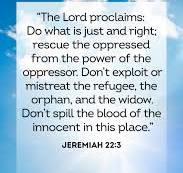
 Let us pray for God to give us clear minds to make the right decisions in these times of injustice and evil.
Let us pray for God to give us clear minds to make the right decisions in these times of injustice and evil.The Local Scene
Violent crimes and killings have continued in different parts of Nigeria without convincing efforts by those in charge to stem the ugly tide.
Rather, they have intensified the desire to protect selfish interests at the expense of good governance.
Governance and politics are different. Those in charge ought to have realized this fact.
May 2025 Admissions ongoing @ MIVA OPEN UNIVERSITY
-
Our God enriches us with His grace
- By solomon2day
- On 13/04/2025
- In Solomon's Column

 Our God enriches us with His grace, demands some work from us, and ensures that no harm befalls us as His willing subjects.
Our God enriches us with His grace, demands some work from us, and ensures that no harm befalls us as His willing subjects.Our God of all time, all places, and all people moves ahead of tradition and popular expectations.
Read Isaiah 45:1-7
The Local Scene-
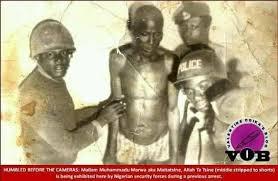
May 2025 Admissions ongoing @ MIVA OPEN UNIVERSITY
Muhammadu Marwa Maitatsine was from Jappai village in Northern Cameroon.
Maitatsine, a Mufu by tribe, became a Muslim in 1940.
The tradition of the ethnic group revolved around human sacrifice and superstition.
Maitatsine's followers, then, were young people, initiated into the group through the consumption of hypnotized concoctions.
This brought in its wake violent crimes, an aberration to all right-thinking mortals.
Sadly, the disturbing trend and source of inspiration of these criminals emanate from the heavy reliance of the leadership at the different levels of government on outlawed substances, in desperate attempts to hold on to political power. Very disturbing.
-
The Light
- By solomon2day
- On 03/04/2025
- In Solomon's Column

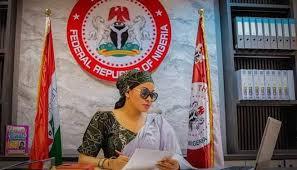
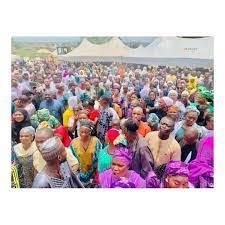
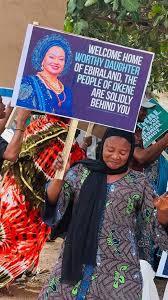
 The light at the end of the tunnel for the vulnerable and poor.
The light at the end of the tunnel for the vulnerable and poor. -
Fellowship with God
- By solomon2day
- On 09/03/2025
- In Solomon's Column

 Believers who sustain a very close fellowship with God have all it takes to neutralize the most oppressive darkness and adverse situations.
Believers who sustain a very close fellowship with God have all it takes to neutralize the most oppressive darkness and adverse situations.The Local Scene
Education ministries in the 36 states and the Federal Capital Territory ought to make public the disturbing standard of education.
The present situation is hopeless, as pupils and students exhibit traits that are very strange in educational institutions.
The attitude of those in charge is that of helplessness, as learning takes the back seat across Nigeria.
Sharp practices have overwhelmed most educational institutions, despite the huge investment in the education sector.
The noticeable oddity everywhere is the sight of criminals in school uniforms, while society carries on as if this is now the norm.
Read God's Word(All correspondence to solomon1day@gmail.com)
-
The Lose of a Firm Grip
- By solomon2day
- On 07/03/2025
- In Solomon's Column

 Those in charge are now face to face with the reality of happenings in different parts of the country, which has so far contradicted their laid-out plans.
Those in charge are now face to face with the reality of happenings in different parts of the country, which has so far contradicted their laid-out plans.This is the major reason that nature can never be manipulated by humanity.
Indeed, there are unpredictable times ahead, as most of those responsible for good governance have lost a firm grip on the disturbing situation.
The make-believe position is no longer tenable, as events continue to unfold on a daily basis.
Justice, fairness and equality all contribute to economic development , in a sane society.
Injustice to one, is injustice to all.
All correspondence to solomon1day@gmail.com
-
Remembrance - Mrs. B.A ADEWUMI (1938-2006)
- By solomon2day
- On 06/03/2025
- In Solomon's Column
Your teachings revolved around discipline, obedience, humility, transparency, integrity, honesty, firmness in the face of intimidation, threats and attacks, the rule of law and due process among several other guidelines for good and successful living.
8th March, 2025 will make it 19 years ago that you left this sin filled and wicked world.
The evil doers will never go unpunished.
You are still in our minds
Continue to rest in the bossom of the Lord
Mrs. Victoria Ande
Mrs. Hannah Mujakperuo
Solomon Adetayo Adewunmi
For and on behalf of
The Adewumi family
-
The Teachings of Jesus Christ
- By solomon2day
- On 02/03/2025
- In Solomon's Column

 Jesus Christ taught about God through stories and parables.
Jesus Christ taught about God through stories and parables.From the teachings of Jesus, we learn all that God requires from us.
The expectation is that, having understood the teachings of Jesus, we will do what is right and proper all the time.
Read Matthew 7
The Local Scene
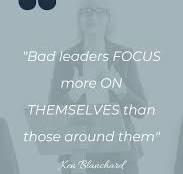
The leadership choice was founded and established on the foundation of indiscipline, lawlessness, and criminality.
This is the major reason why decision-making from expected quarters has become not only a national embarrassment but also a stain on the reputation of an acclaimed role model in Africa.
The citizenry, a significant number still hope to be literate, have no other option but to replicate the absurd at every level of government presence.
Ordinarily, a faulty education results in impediments in governance, regardless of challenges that persist in the face of identified solutions.
The destructive effects of a faulty education are everywhere for discerning minds to observe.
Indeed, the increasing number of illiterates and the surge in, ritual killings and kidnappings are all fallout and true reflections of a faulty education and the debatable choice of leadership.
-
Hearts harder than rock
- By solomon2day
- On 17/02/2025
- In Solomon's Column

 The people are now aware of the nocturnal conspiracy that persists in the offices of the ''wicked rulers'' of all levels of government.
The people are now aware of the nocturnal conspiracy that persists in the offices of the ''wicked rulers'' of all levels of government.Heinous acts are directed and ordered with a single stroke of the pen.
The lives of millions have been converted to dice by the leadership, even as men of God relentlessly expose those who scheme and cheat from hearts that are harder than rock.
Read Judges 5:19
The Local Scene
Those in charge are pressing on with policies that are anything but people-friendly, despite the loud outcry of millions of citizens.
Surprisingly, the personalities involved revolve around threats, harassment, intimidation, and attacks through those that are responsible for the protection of lives and property.
Curiously, the dictatorial attitude of the leadership has already attracted prompt measures from those whose approach to leadership is hinged on integrity, transparency and accountability.
-
Our Needs
- By solomon2day
- On 11/02/2025
- In Solomon's Column

 Elijah the prophet spoke out when the kings led their people off the track.
Elijah the prophet spoke out when the kings led their people off the track.He also taught the people of Israel all they needed to know about the Lord.
Elijah alerted King Ahab of the imminent drought in the land, and afterwards, he went away to Zarephath, where God, through a widow, provided for all his needs.
In times of need, God will show you His care and love by providing for all your needs.
Read 1 Kings 18:1
Support online news website-New Federation
The Local Scene
Homosexuality, sodomy, pedophilia, defilement, rape among others have become worrisome crimes against humanity.
Young children have long been initiated into these crimes, and they have now accepted them as ways of life.
Olorunsogo, Molete, Molusi, Onafunwa Solanke, Oshodi, Aluko, Scout Camp, and Felele are all communities in Ibadan, Oyo State, Nigeria, where crime and criminality have now been integrated as the norms and values.
However, the presence of adults in these communities exposes the origin of these social vices.
Accusing fingers are pointing to the choice of leadership that feigns ignorance over the rot that is everywhere.
-
Good Deeds
- By solomon2day
- On 07/02/2025
- In Solomon's Column

 Support online news website- Liberty Port
Support online news website- Liberty PortDevelop the act of doing good always. Make it a habit.
Good deeds are good reflections of your background and upbringing.
Let people notice the good in you. Read Psalms 119:68
-
Living Wages-Workers in Nigeria are in deep shock-Comrade Emelieze
- By solomon2day
- On 05/02/2025
- In Solomon's Column

 Workers in both the public and private sectors of all sectors of the economy in Nigeria are yet to attain the acceptable state of mind to guarantee unimpeded productivity.
Workers in both the public and private sectors of all sectors of the economy in Nigeria are yet to attain the acceptable state of mind to guarantee unimpeded productivity.Living wages and human-friendly conditions of service boost efficiency, effectiveness, and diligence in economies that value the worth of their workforce.
However, lamentations, complaints, grumblings, and arguments have for so long characterized the approach of workers to the scheme of things.
Sadly, the multiple effects of the obvious disregard for the workforce have manifested in all sectors of the economy.
Comrade Andrew Emelieze is the convener of the All Workers Convergence and Federal Workers Forum.
Comrade Emelieze laments that the situation is almost hopeless, just as he calls on those in charge to salvage the country's helpless workers.
''The new national minimum wage is nothing to write home about. Workers in Nigeria are in a state of confusion over the implementation of the N70,000 minimum wage. The amount that was added to our salaries is inconsequential, demeaning, and equally exploitative.
Federal workers are still in deep shock as the January salaries were reduced, the annual increment is missing, the so-called N40,000 consequential adjustment minimum wage was withheld, and there is no readily available explanation from the federal government. Moreover, 5 months of wage award arrears are yet to be paid, and promotion arrears are still being expected in addition to so many other arrears. Surprisingly, just as December salaries were delayed, some ministries, departments, and agencies are yet to receive January salaries.'' Comrade Emelieze revealed.
Indeed, those who worship God and mammon simultaneously are already blaming themselves and their sponsors.
-
One God
- By solomon2day
- On 03/02/2025
- In Solomon's Column
 It is imperative that we learn and practice all that is right.
It is imperative that we learn and practice all that is right. We must learn how to live as God's covenant people to pave the way for an unhindered worship of God with our whole hearts.
Read Deuteronomy 5:1-15, 6:4, 5.
-
Become a Positive Influence
- By solomon2day
- On 26/01/2025
- In Solomon's Column

 Regardless of your age or how insignificant you are, you can be a positive influence for the Lord.
Regardless of your age or how insignificant you are, you can be a positive influence for the Lord. -
The Armor of God
- By solomon2day
- On 23/01/2025
- In Solomon's Column

 The times are full of evil, diabolism and fetish practices. To ward off evil, put on the Armor of God
The times are full of evil, diabolism and fetish practices. To ward off evil, put on the Armor of God -
Violent Crimes-The Position of Spectators
- By solomon2day
- On 20/01/2025
- In Solomon's Column
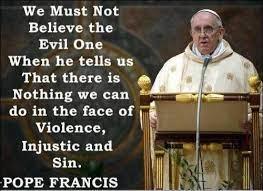
 The consensus among Nigerians is that the arms build-up in different parts of the country has its background woven around the aspirations of actors in the socio-political scene in the land.
The consensus among Nigerians is that the arms build-up in different parts of the country has its background woven around the aspirations of actors in the socio-political scene in the land.The arms build-up festers side by side poverty, hunger, and brigandage, while the land has over time become fertile for trading in illegal arms with evil deeds as the major focus.
Indeed, state actors are familiar with the negative effects of injustice, inequality, nepotism, and favoritism but are, sadly, handicapped by self-centered interests and incurable greed.
Interestingly, the competition for power and privilege has resulted in the loss of precious lives and the wanton destruction of the properties of innocent and harmless citizens.
The major functions of state actors is now the debate among mllons of Nigerans
The illegal influx of arms and ammunition has continued unabated through constitutional and unconstitutional channels with the active connivance of those who ought to be well-informed on security matters.
As violent crimes soar nationwide through the use of sophisticated weapons, those in charge have adopted the position of spectators to the amazement and chagrin of Nigerians.
Indeed, the scooping of petrol at truck accident locations and scavenging in refuse dumps are now te response of Nigerians to the hunger ad poverty in te land.
-
Coercion in the face of economic hardships
- By solomon2day
- On 16/01/2025
- In Solomon's Column

 Millions of Nigerians are hopeful that the year 2025 will bring in its stride abundance and prosperity.
Millions of Nigerians are hopeful that the year 2025 will bring in its stride abundance and prosperity.Although they are mindful of the fact that up till this moment, coercion, manipulation, and deceit are among the hallmarks of governance.
Despite the glaring setbacks and failures in most sectors of the economy, political officeholders insist that all is well. Curiously, this is not so.
For the spokesperson of the Federal Workers Forum, Comrade Andrew Emelieze, Nigerians are hoping that the economic hardships will melt away this year.
''What we hope for is not just by saying we hope for the best, but rather the disappearance of the economic hardships everywhere. Workers are expecting the government to effect an immediate upward review of the N70,000 minimum wage, which is obviously a slave wage. The government should also review the National Housing Fund, which is yet to benefit workers; the same should also be done for the pensions of retirees.'' Comrade Emelieze stated.
The worrisome situation in the country now revolves around leadership failure, illiteracy, ignorance, lawlessness, indiscipline, immorality, criminality, and evil, among others.
Sadly, the acts of commission and omission by those in charge suggest that Nigeria is no longer practicing democracy.
-
Evil Times
- By solomon2day
- On 11/01/2025
- In Solomon's Column

 Satanic occurrences in different parts of Nigeria in this dispensation are on the increase due to the complicity of those in charge.
Satanic occurrences in different parts of Nigeria in this dispensation are on the increase due to the complicity of those in charge.Indeed, ritual killings and unnatural deaths pervade the landscape while grief-stricken families and relatives mourn their loved ones without consolation.
Surprisingly, those in charge carry on as if nothing tragic happened.
This is sad.
Of worry, however, is the seeming absence of humanity in a sizable number of Nigerians cutting across social status, religious persuasions, and ethnic leanings. Why is this so?
The spokesperson of the Federal Workers Forum, Comrade Andrew Emelieze, says that it has to do with the complicity of those in public offices and the mindset of the citizens.
''It is everywhere, oddities and strange happenings involving human lives. This dispensation has been characterized by difficult-to-explain deaths. These happenings are not natural. Fetish and diabolic incidents continue to occur without decisive efforts to curtail the same. The insinuation is that those in charge are complicit. So much human blood has been shed for unknown purposes. This is disturbing and a great source of concern for Nigerians.
Strange deaths occur daily in different parts of the country, and those in charge carry on as if it is normal; it is not normal, Comrade Emelieze stated.
The evil times are here, and the evil that men do live with them.
-
Criminality:The Complicity of Those in charge
- By solomon2day
- On 30/12/2024
- In Solomon's Column

 In a society where justice and the rule of law prevail, the necessary must be done to affected stakeholders who promote crime and criminality.
In a society where justice and the rule of law prevail, the necessary must be done to affected stakeholders who promote crime and criminality.The community leaders, members of the Landlords and Tenants Association, law enforcement agents /agencies, and residents of Olorunsogo, Molete, Molusi, Solanke, Oyegbami, Oshodi, Scout Camp, Aluko/Barracks, and Felele communities in Ibadan, Oyo State, Nigeria, who sponsored hoodlums wielding stones, machetes, and iron rods to attack and injure a resident of 3, Kehinde Aderibigbe Street, Olorunsogo, Molete, ought to be brought to justice.
Sadly, this is not the case.
These attacks were on several occasions and continue up to this moment.
Indeed, impunity in the above-mentioned communities and several others is the order of the day and way of life.
Interestingly, cultists have now gained prominence and recognition in these communities, since the leadership at all levels not only in these communities, but at all levels of government, is favorably disposed to criminality.
In addition, those behind the vandalization and looting of 3, Kehinde Aderibigbe Street, Olorunsogo, Molete are still walking the streets freely, full of boasts, and acting persistently with impunity.
Why is this so?
On Tuesday, 4th October, the criminals, with the consent of other residents, forced the door of the resident of 3, Kehinde Aderibigbe Street, Olorunsogo, Molete, open and made away with valuables.
Perhaps crime and criminality are now a means to several ends for those in charge, who may have severed ties with the attributes of good and focused leadership.
The relevant law enforcement agencies are well aware of the reign of crime and criminality at Molusi, Solanke, Oyegbami, Olorunsogo, Molete, Oshodi, Aluko, Scout Camp, Felele, and several other communities in Ibadan, Oyo State.
However, the mode of recruitment and quality of training for these uniformed personnel has attracted an unending debate.
But probably due to the involvement of some of the law enforcement agents with the cultists who perpetrate heinous and grievous crimes, little or nothing has been done to reverse the worrisome situation.
This is even as there are several unreported heart-rending cases, that may have been swept under the carpet.
Since the law enforcement agencies have the responsibility to ensure the safety of lives and property, the unending reign of terror by these cultists, who openly threaten to kill those who question their activities leaves much to be desired.
A point of reference is one ' Samba', a barber, whose barbing shop is among the block of shops located in front of a building at the Aluko/Barracks, Felele/Scout camp/Oshodi Street junction.
He openly threatens to kill people while at the same time boasting of his connection with some officers and rank and file of the Police.
Indeed, owners of beer parlors, Ogogoro joints, hotels, and a sizable number of shops in these communities are ready accomplices of these cultists in these communities.
From 2019 till date, an unspecified number of human lives have been lost with no traces of those who are to be held responsible and accountable.
-
Those in Authority
- By solomon2day
- On 23/12/2024
- In Solomon's Column

 There is a striking contrast between carefree disciples strolling through cornfields on a peaceful Sabbath day and the stern Pharisees clearly looking for some way of trapping Jesus Christ.
There is a striking contrast between carefree disciples strolling through cornfields on a peaceful Sabbath day and the stern Pharisees clearly looking for some way of trapping Jesus Christ.It is not likely that the disciples plucked the ear of corn out of any deliberate defiance of the law.
It would seem a natural thing to do as they brushed past it and admired the ripe golden fullness.

But the Pharisees turned the occasion into one of legalistic confrontation.
Jesus Christ calmly responded, appealing to their tradition.
People in authority are sometimes tempted to use legalistic arguments to ensnare others, even when they willingly commit only minor transgressions.
But the Son of man came to show a more humane way of treating one another, with understanding, compassion, and a sense of proportion.
-
Care for your vineyards
- By solomon2day
- On 21/12/2024
- In Solomon's Column

 The judgment of God shall always come upon parents who fail to bring up their children in the Lord's way.
The judgment of God shall always come upon parents who fail to bring up their children in the Lord's way.Indeed, a sizable number of fathers and mothers do very well in guiding other people's children towards the right path, but this is not so for their biological children.
Even though the children of this category of parents are lacking and deficient in several aspects of life, their parents see all the goodness and perfection in them.
Today, most parents have failed to instill moral discipline in their children.
It is imperative for all to care for their vineyards, as they also care for the vineyards of others. Read 2 Kings 17:41
-
The National Debt
- By solomon2day
- On 12/07/2024
- In Solomon's Column
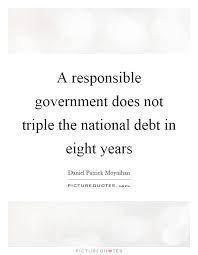 Nigeria's chronic budget deficit has brought about an unhindered increase in the national debt.
Nigeria's chronic budget deficit has brought about an unhindered increase in the national debt.Indeed, the multiple taxation by the government at all levels may now be too embarrassing for an economy that majorly revolves around the motive of personal gain.
Without doubt, the redistribution of disposable income from the well-to-do to the indigent would increase the average propensity to consume, since the marginal propensity of the indigent to consume is higher than that of the well-to-do.
Sadly, this approach is not in the thoughts of the government, although the budget deficit may have stimulated private investments.
The government ought to cut down on expenditure on political office holders.
However, in view of the fact that the economy is ailing, the government at all levels must be decisive and proactive in interventions in health, transport, electricity, unemployment, hunger and poverty.
Of course, the protection of sectors such as education, health and agriculture which have direct bearing on the survival of citizens from unpredictable price mechanisms is desirable, but largely depends on the mindset of those in charge.
Bad Eggs in Uniform
The crime-friendly mindset and attitude of a number of those in law enforcement agencies in certain states, including Oyo, justifies the unabating lawlessness, criminality and violent crimes in the land. Curiously, the high levels of insecurity in Nigeria is partly due to unprofessional conduct and despicable acts of bad eggs in uniform.
-
A Troubled Nation
- By solomon2day
- On 12/07/2024
- In Solomon's Column


God is ignored, persecution takes the place of justice, lying and perjury in place of the truth, adultery in place of fidelity and violence in place of kindness.
These are all attributes of a troubled nation.
Let us pray to the Lord to take pity on us and give us leaders of integrity, priests of holiness and open our closed and greedy hearts to the redeeming power of His word.
Hosea 4:1-10
4Yet let no man strive, nor reprove another: for thy people are as they that strive with the priest.
7As they were increased, so they sinned against me: therefore will I change their glory into shame.
8They eat up the sin of my people, and they set their heart on their iniquity.
-
The Electricity Issue
- By solomon2day
- On 13/01/2024
- In Solomon's Column
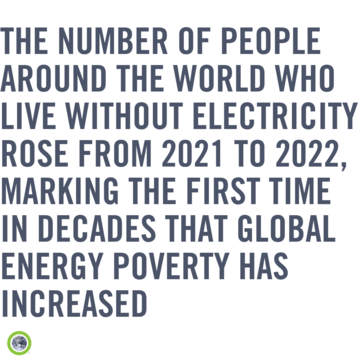
Over 10 years after the privatization of the electricity sector in Nigeria, millions of Nigerians still remain without meters and regular electricity supply.
Indeed, the set objectives of the privatization are yet to be achieved, while the number of defects in the regulatory policy have been brought to the fore.
Infrastructural development in the sector remains a major issue, just as distribution and generation companies struggle to impress electricity consumers.
The situation remains the same as a result of the unknown interest of government officials.

Poolee Smart LifewatchPoolee Smart Lifewatch
Over 50% more screen Area.
Cellular Available
Weight: 51g
Battery: 235mAh
Sweat Proof
Rain Proof
Water Proof
Full Screen Touch
G - Sensor
Heart Rate Monitor
SP02Suitable for iOS 8.0 and above
Suitable for Android 5.1 and abovePrice - ₦30,450
Click on the link below to buy this product and enjoy amazing discount today.
-
A True Reflection of the Leadership Mindset
- By solomon2day
- On 18/12/2023
- In Solomon's Column

The unfolding events in Rivers state is a reflection of the warped mindset of the leadership at the highest level of governance in Nigeria.Not surprisingly, mum is the word at this very important level of government. Why?
Those in leadership positions are yet to imbibe the tenets of democracy.
Indeed, a lot is wrong with the approach, template and structure of governance, even though deceit, lies, falsehood and depraved actions of those in government continue with impunity.
-
Awake to the Reality of the the Times
- By solomon2day
- On 03/10/2023
- In Solomon's Column
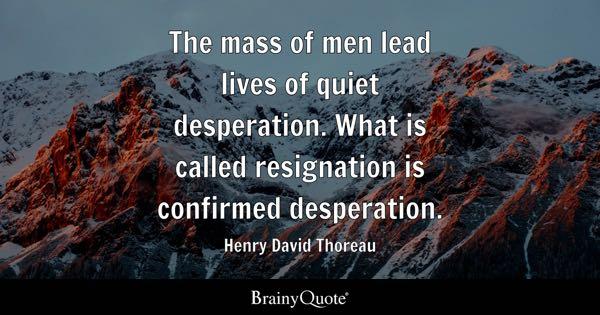 Desperation to continue the status quo- a period during which Nigerians have over the years been deceived into perpetual political, economic and social bondage-informs the insensitivity of the leadership[ at all levels of government.
Desperation to continue the status quo- a period during which Nigerians have over the years been deceived into perpetual political, economic and social bondage-informs the insensitivity of the leadership[ at all levels of government.To this extent, confusion, disagreement and rancor now characterize the relationship between the leadership, their cronies, proteges and fronts.
Interestingly, millions of Nigerians have eventually woken up from their deep slumber and are now anxious to know what befell them.
-
Calls for Urgent Deliverance
- By solomon2day
- On 25/07/2023
- In Solomon's Column
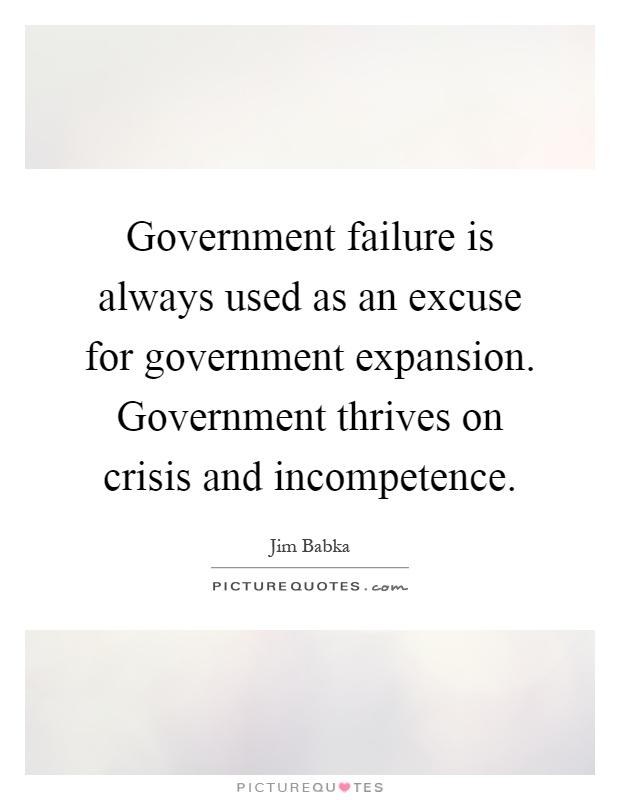 The key elements of tyranny include, but are not limited to, insensitivity, brutality, random arrests, incarceration and unresolved cases of killings.
The key elements of tyranny include, but are not limited to, insensitivity, brutality, random arrests, incarceration and unresolved cases of killings.Curiously, the prohibitive price of the Premium Motor Spirit(PMS) is already having multiple negative effects on the economy, even as Nigerians persist in their daily lamentations of the unbearable hardships that have been their lot in recent times.
Indeed, governance on the platform of deformed democratic institutions attracts tyranny, which is not in tandem with the wishes and expectations of Nigerians.
Interestingly, the people are yet to identify any conceivable reason for the policy direction of Those-in-Charge towards the worrisome and disturbing situation that called for urgent deliverance.
The cost of living is on the rise on a daily basis and Those-in-Charge continue to appeal and cajole citizens to take their sufferings as sacrifices that must be made for the anti-people policies that are ravaging the land.
Self Preservation in the Midst of Evil
These are very dangerous times in so many states in Nigeria, which have, long before now, become the Biblical Sodom and Gomorrah.
Indeed, the overlords in the states have succeeded in remodelling their domains into havens of all that defies morality and decency.
Of worry is the increase in the cases of death revolving around drink and food poisoning, in addition to sexually transmitted diseases. All the afore mentioned are weapons of destruction by those obsessed with temporal power.
Curiously, the services of migrants from other states are engaged to carry out the unthinkable and unbelievable. The only option now open to Nigerians is to adopt measures that would ensure self preservation in the midst of evil by Those-in-Charge.
-
A Few Wrong Steps
- By solomon2day
- On 11/07/2023
- In Solomon's Column
Nigerians are astonished that violent crimes have once again occurred in different parts of the country.
Numbers of lives have been lost and property running into millions of Naira has been destroyed, as a result of a few wrong steps by Those-in-Charge of governance at all levels.
Those who know are reluctant to expose the deep involvement of the acclaimed representatives of the people.
This is unfortunate, as can be seen in Olorunsogo, Molete, Ibadan, Oyo state, Nigeria.
-
Farmers Worry
- By solomon2day
- On 03/07/2023
- In Solomon's Column
Farmers in Nigeria have continued to lament the hostile attitude of the government at all levels towards the enactment of a policy that would empower and safeguard them.
Of worry,are the numerous challenges weighing down the agricultural sector, among which is the astronomical costs of processing and distribution between the farms and markets.Indeed, the insecurity in different parts of the country has resulted in the forced annexation of the ancestral land of the people by faceless actors backed by Those-in-Charge.
In so many states the real estate business has distracted the elected representatives of Nigerians form their primary responsibilties, while lawlessness and criminality have defied all solutions.
Difficulties in accessing credit, farm loss and policy-induced distortions have also contributed to the situation today, that has translated to hunger and poverty.
Sadly, the ailing sector has ensured the acute shortage of food, a high rate of unemployment, increase in the poverty rate and inadequate supply of raw materials to industry, while political office holders grapple with self-centered interest-outside economic development.The Economic Status
Daily scenes, events and occurrences across the geographical locations in Nigeria indicate that millions of Nigerians are anxious to experience a positive change in their economic status very soon. How soon, Those-in-Charge would have to determine. -
Protecting Poor Nigerians from the Unpredictable Price Mechanism
- By solomon2day
- On 27/06/2023
- In Solomon's Column
Nigeria's chronic budget deficit has brought about an unhindered increase in the national debt.
Indeed, the multiple taxation by the government at all levels may now be too embarrassing for an economy that majorly revolves around the motive of personal gain.
Without doubt, the redistribution of disposable income from the well-to-do to the indigent would increase the average propensity to consume, since the marginal propensity of the indigent to consume is higher than that of the well-to-do.
Sadly, this approach is not in the thoughts of the government, although the budget deficit may have stimulated private investments.
The government ought to cut down on expenditure on political office holders.
However, in view of the fact that the economy is ailing, the government at all levels must be decisive and proactive in interventions in health, transport, electricity, unemployment, hunger and poverty.
Of course, the protection of sectors such as education, health and agriculture which have direct bearing on the survival of citizens from unpredictable price mechanisms is desirable, but largely depends on the mindset of those in charge.
Bad Eggs in Uniform The crime-friendly mindset and attitude of a number of those in law enforcement agencies in certain states, including Oyo, justifies the unabating lawlessness, criminality and violent crimes in the land. Curiously, the high levels of insecurity in Nigeria is partly due to unprofessional conduct and despicable acts of bad eggs in uniform.
-
Misplaced Priorities
- By solomon2day
- On 06/06/2023
- In Solomon's Column
 The lack of domestic purchasing power of citizens has been a set back for economically backward countries of the world.
The lack of domestic purchasing power of citizens has been a set back for economically backward countries of the world.
Monetary expansion in these countries has resulted in the inflation of prices of goods and services to the detriment of the people.
Indeed, in a number of countries, the great majority who are poor are manipulated to focus on smart phones and related products as urgent priorities even as they wallow in abject poverty.
Sadly, these products are not locally produced, but imported from economically viable countries.
Of worry, is the fact that the real income of the workforce is side by side to the subsistence level-with little or no hope for a raise.
The unimpressive income of the workforce has ensured that productivity remains at the lowest ebb, while redundancy, inefficiency and mdeciority take the center stage.
Curiously, the prevailing hunger and poverty in a given geographical location not only inhibits the inducement to invest but also discourages economic progress.
Nigeria is made up of an estimated land mass of 923,773km2, including varied vegetation and soil types suitable for a variety of agricultural initiatives.
Solid minerals, namely coal, coumbite, liginite, talc, marble, baryte, gypsum, iron, crude oil, among others abound in the country.
The mentioned resources ought to be a concrete foundation for development.
The improvement in the well being of citizens is usually the ultimate objective of visionary leadership all over the world. In addition, this is achievable by formulating an economic policy that would ensure unhindered access to the basic needs of life by citizens.
There is no doubt that today's political office holders ought to put in place policies that would have an immediate, visible and positive impact on the quality of lives of millions of impoverished Nigerians.
The Desperate and Wicked Heart
Well wishers, supporters, admirers and loyalists of political office holders are indeed, having a field day in Molusi, Olorunsogo, Onafuwa Solanke, Oyegbami, Oshodi, Aluko and Felele communities in Ibadan, Oyo state among several other communities in Nigeria. The situation is disturbing even as lawlessness and criminality persists.
Indeed, long before now, pick pocketing has become a means to an end in different parts of Nigeria, with no convincing effort from Those-in-Authority to combat the ugly trend.The hearts of those who insist that they are representatives of the people have become seemingly desperately wicked. -
The Vicious Circle of Poverty
- By solomon2day
- On 29/05/2023
- In Solomon's Column
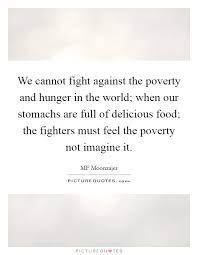 Infrastructure is a necessity for development but may not be a condition for advancement.
Infrastructure is a necessity for development but may not be a condition for advancement.Skilled labor, moral and social outlook, political situation and historical narratives all play critical roles in economic development.
Indeed, the store of technical knowledge is not at par with economic resources available at a given point in time, while corruption remains a major impediment to development.
Various conditions determine the inducement to invest, but in most cases, developing countries rely on a make-believe and cosmetic approach.
Unfortunately, this has not been successful.
The potential to develop is guided by the ability and willingness to save.
Sadly, the capacity to save in developing countries is low due to low real income, which in turn is as a result of low productivity and the visible absence of the enablers of development. Some countries remain in the vicious circle of poverty not because of the lack of natural resources and a conducive environment, but because of corruption, greed and self-centeredness among those-in-authority.
However, redundancy and ignorance are challenges for the workforce in focus.
-
Seeking Foreign Direct Investment
- By solomon2day
- On 22/05/2023
- In Solomon's Column
 Lawlessness is now the way of life in Nigeria, due to the lingering poverty and hunger in the land.
Lawlessness is now the way of life in Nigeria, due to the lingering poverty and hunger in the land.
A review of the economy and security architecture will unravel the untold story, only if a transparent probe is conducted in the days to come.
A number of the crises in the last eight years have generated revenue for a few pockets, with millions of Nigerians always contending with the sufferings and hardships during such crises.
Indeed, the interests of Nigerians have been undermined or destabilized based on ethnic, religious and gender considerations.
Sadly, the political leaders in the states, have failed to convincingly ensure a conducive environment, but are in the nick of time, seeking direct investment.
Investors can only develop confidence in the economy when there is regular electricity supply, free flow of potable water, good and motorable roads, security of lives and property, skilled and trained power and favorable incentives for startups. -
Translating Acclaimed Potentials to Reality
- By solomon2day
- On 11/05/2023
- In Solomon's Column
 This has resulted in the sidelining of critical sectors of the economy.
This has resulted in the sidelining of critical sectors of the economy.
Nigeria's quest for economic growth and national development, has overtime, been impeded by the absence of broad policy objectives and strategies for achieving the country's vision statement.Policy choices all the while have impacted negatively on the economy, which has brought about social and political instability, declining welfare and economic stagnation.
Of worry is the long term effects of the huge debts of governments at all levels and the weak Naira on the economy.
This is compounded by the challenges the perpetual absence of credible and focused leadership will bring in its stride.
Indeed, the possibility of Nigeria translating its acclaimed potential to reality remains foggy, even as the government struggles to improve education and health systems to enhance human capital for development.
Assets Declaration
Transparency in asset declaration is crucial to good governance.
Political office holders at all levels ought to declare their assets before inauguration into office in a democracy.
Sadly, the treasury at all levels of government was looted clandestinely, under the guise of ''it is our common wealth''. -
The Disturbing Absence of Demographic Planning in Nigeria
- By solomon2day
- On 24/04/2023
- In Solomon's Column
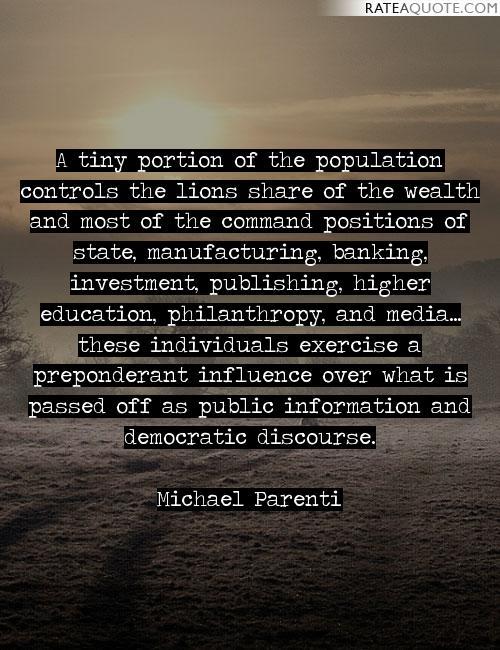 The first census in 1962 was cancelled as a result of allegations and counter allegations of over-counting in several geographical locations in the country.
The first census in 1962 was cancelled as a result of allegations and counter allegations of over-counting in several geographical locations in the country.
The figures were rejected by the Eastern and Mid-Western regions based on their arguments that the figures for the Northern region were inflated.
The result was 29.8 million for the North, 10.3 million for the West, 12.4 million for the East and 2.5 million for the Mid-West.
Another census held in 1973, by General Yakubu Gowon-led military government fixed Nigeria's population at 79.758 million.
Controversy trailed the result and it was eventually cancelled by the Murtala Muhammed-led military government in 1975.
However, in 1988, the National Population Commission(NPC) was established, but failed to minimize the controversies revolving around the result of the census.
In 1991, the military government of General Ibrahim Babangida conducted yet another census. The NPC put the country's population at 89.9 million.
Nigerians kicked, insisting that the result did not represent the true figure of the country's population.
In 2006, the civilian administration of former President, Chief Olusegun Obasanjo, conducted the most recent census and the result presently serves as the basis for political and economic projections in the country.
Sadly, it is doubtful if policy makers have been successful in pinpointing the population growth rate for long term planning.
Of worry, is the fact that uncertainty surrounds the actual figure of the new addition to the population and the available resources in the country.
Indeed, the absence of proper demographic planning is visible at the three tiers of government, even though the office holders emerged through the ballot box.At the Tail End
The acts of omission and commission must have been well thought out, carefully planned and professionally executed, but at the tail end, The Powerful Today,seeing the handwriting on the wall, have resorted to apologies and pleas for forgiveness.The feeling everywhere now, is that there has not been any government in place, at the center and in a specific numbe of states, all this while.
-
When Nation Building takes the Back Seat
- By solomon2day
- On 10/04/2023
- In Solomon's Column
 Nigerians will soon heave a sigh of relief, after eight years of tortuous regulation of their behaviors by those in power today.
Nigerians will soon heave a sigh of relief, after eight years of tortuous regulation of their behaviors by those in power today. Indeed, participation in the decision making process during this period is a true reflection of democracy.
Sadly, additional organizations have been established to further regulate the behavior of Nigerians and in the process ''dehydrate'' them financially.
Political and career appointments in this administration exposed the fact that Nigeria is not a balanced federation revolving around the principles of justice, equity and fairness.
The insensitive leadership facilitated the entrenchment of economic stagnation at all levels of government; closely followed by the political mariginalization of the other geo-political zones. Indeed, the policies of the apex people's unfriendly policies of the apex bank in the country, have overshadowed the loyalty and commitment of Nigerians to nation building.
The Twilight Days
It is so sad that in the twilight days of the present administration, terrorism, banditry, killings and other violent crimes are on the increase. Are these what Nigerians will remember the outgoing administration for? Probably not.
-
The Cosmetic Process of Democracy
- By solomon2day
- On 03/04/2023
- In Solomon's Column
The deepening sufferings and hadrships in Nigeria are a fall out of the greed, self-centered intents and the lack of know how of those opportuned to be controllers at every level of government.
Desolation of the polity has set in, with political entrepreneurs maintaining their beneficiary status, even though the outlook is very bleak.
Sadly, those who Nigerians eexpect to keep Those-in-Authority on their toes, have over-timme, contributed positively to the anti-people policies of the government under the cover of darkness.
Indeed, their public statements and declarations are bereft of sincerity and sensitivity.
Not surprisingly, the masses no longer rely on the labor movement, which in the past was the last resort of defence against evil.
It was not until the tail end of the Naira scarcity imbroglio, that labor decided to wake up to its deep slumber by acting out a written script.
Events in Nigeria(unfolding) have proven and will prove that the peace and unity of any country revolves around the character of its people and to a lesser extent, the form of government it adopts.
Since the body language of Those-in-Authority is not indicative of the discipline of desire which is the background of character, the imperatives of self-sustenance and material wellbeing of Nigerians have been overwhelmed by a cosmetic process of democratic despotism at every level of government.The Sudden Realization
Celebrations of victory have continued in the closets of those who are conversant with what transpired in a number of states before, during, and after the elections, while the streets remain indifferent and non-chalant as a result of the sudden realization that things are not the way they are pushing them to be. -
The Stubborn Refusal to Learn from History
- By solomon2day
- On 12/02/2023
- In Solomon's Column
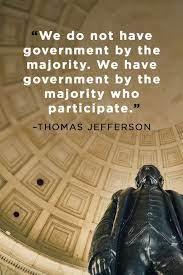 1963/64, 1983, 1993, and 2003 are significant years in Nigeria's history.
1963/64, 1983, 1993, and 2003 are significant years in Nigeria's history. A number of political office holders may have learnt a lot of lessons from history, even though others have become perpetual learners and have continually repeated avoidable mistakes of the past.
In a number of days to come, Nigerians will elect a brand new President and the statutorily stipulated lawmakers.
Sadly, February 25th, a date that ought to attract happiness and hopes for Nigerians, has become a source of great worry.
This date will serve as the long awaited JUDGMENT day for Nigerians to either reward good governance or effect a change in the present status quo, where and if necessary, in the center and the 36 states on March 11.
Indeed, the gloomy faces of Nigerians constitute a major indication that the democratic experience has been that of despondency, anguish, sorrow and bitterness.
Without doubt, the journey has been a political mis-adventure directed by the political class, who have, overtime, displayed a stubborn resolve not to learn any lessons from history.
The Truth in Agonies and Hardships
A school thought has it that the agonies, hardships and difficulties, Nigerians are presently experiencing were deliberately designed to make the electorate vulnerable to evil influences on election days. Perhaps this is true.
-
As the General Elections Approaches
- By solomon2day
- On 16/01/2023
- In Solomon's Column
Nigerians are hopeful that the Independent National Electoral Commission(INEC) will justify the mind-boggling money the Federal Government set aside for the successful conduct of the general elections.
This will become a reality if the elections are free, fair and credible.
However, the violent crimes occurring on a daily basis in different parts of Nigeria is a major threat to the smooth conduct of the elections.
Of worry, is the safety of lives and property.
The electoral umpire has already made public, selected observers for the elections and part of that allocation will be for the observers.
The journey so far, has been a far cry from what Nigerians envisaged when the present administration mounted the saddle in 2015.
Indeed, the chairman and Resident Electoral Commissioners(REC) in the states where elections will take place should be above board and ought to maintain a non-partisan attitude before, during and after the elections, to ensure that the confidence reposed in them by the Nigerians does not wane.
In the same vein, other categories of officials of the INEC ought to be mindful of their responsibilities by not engaging in acts that will undermine the smooth conduct of the general elections.
Violent crimes
Community leaders, elders and residents, landlords and tenants associations in communities in Nigeria ought to be held responsible for lawlessness and criminality in their domains, since they live and know those who are involved. The law enforcement agencies must cease to scratch the surface and act according to the dictates of their primary duties
-
Debts and the 2023 General Elections
- By solomon2day
- On 27/12/2022
- In Solomon's Column
Nigerians are now very worried and are asking several questions over the present debt situation of the Federal and State governments.
In recent years, the government at all levels have failed to exhibit a high sense of responsibility in managing borrowed funds. Are the incurred debts at a sustainable level?
Nigerians wish to know.
Obviously, the heavy indebtedness of a number of states is a reflection of the major reason why those in authority occupy public offices.
Indeed, the lack of prudence in the management and utilization of borrowed funds and the disability of measures that will guarantee transparency are two major characteristics of debt management in the country.
The country's debt profile is disturbing, while the capacity of the different levels of government to manage their debts is questionable.
Most importantly, the domestic debt data of all the states ought to be made public for Nigerians to know the financial status of these states.
This will go a long way to determining the fate of preferred candidates for elective positions in the 2023 general elections.
Sadly, millions of Naira have been frittered away to promote the activities of cultists, hoodlums and other categories of criminals by Those-in-Charge, as can be seen in the Olorunsogo, Molete, Felele, Scout camp and other communities in Ibadan, Oyo state, Nigeria, just as the crowd at available sources of doubtful sources of water establishes the fact that development is still a mirage.
Note- The liability value of appendages of serious candidates for elective offices in the 2023 general elections in the guise of political party candidates is not only a disservice to democracy, but also a threat to the electoral process.
-
Illicit Substances and Sustainable Development
- By solomon2day
- On 09/11/2022
- In Solomon's Column
Over time, young people in a crisis have been neglected and this has resulted in an increased rate of drug use, misuse and abuse, in addition to illicit substance intake.
Sadly, parents and guardians have been found wanting in the examination of behavioral defects in their children and wards, which have become pointers to drug or substance dependence.
Indeed, different parts of the country are presently in crises which have served as the catalysts for drug use, misuse and illicit substances and enlightenment on the dangers at the lowest ebb.
An unspecified number of youths have been manipulated to migrate to city centers; today they are now liabilities to society.
Note-
Several communities in Nigeria, particularly the South West geo-political zone, have been overwhelmed with strange faces. These strange faces intimidate, threaten and attack innocent citizens and residents just as illicit substances are now sold openly, as abnormalities are now the trend. Those who facilitated the heavy presence of those strange faces have continued to support their activities revolving around heinous and grievous crimes.
-
Street Trading- The Need for Political Preservation
- By solomon2day
- On 24/10/2022
- In Solomon's Column
Environmental pollution has become part and parcel of daily life in major cities in Nigeria as a result of the lack of political will by the appropriate authorities to enforce relevant laws.
Street trading and hawking on the main road, road verges, medians, setbacks, drainages, pedestrian bridges and walkways have become permanent features in these cities, since those responsible for the menace are well wishers, supporters and loyalists of political office holders.
Even though there are designated market locations, Those-in-Charge are very reluctant to wield the big stick because of the urgent need for political preservation. Indeed, pickpocketing thrives in these locations, as it has become a veritable source of income with the covert cooperation of commuters, transporters and law enforcement personnel.
The free flow of human and vehicular traffic would continue to be hindered in these cities, if the political overlords today fail to facilitate not only the regulation of street trading and hawking, but the enforcement of relevant laws in this respect.
Note- The conferment of national awards and prize giving have little or no impact on the citizenry, in the face of hunger, poverty, unemployment and insecurity. Those-in-Charge ought to leave behind legacies that would impact positively on impoverished Nigerians
-
The Resort to Lawlessness and Crime
- By solomon2day
- On 17/10/2022
- In Solomon's Column
 It is very disturbing that the lack of scale and coherence feature prominently in most of the initiatives to address the youth empowerment challenge in Nigeria. The population of youths who are gainfully employed in the critical economic and social sectors is very discouraging. Indeed, a sizable number of the population do not possess relevant digital skills to fit into these sectors. Indeed, a lot still has to be done to the psyche, value and attitude of the youths in this clime, to enable them to have access to decent work and productive employment.
It is very disturbing that the lack of scale and coherence feature prominently in most of the initiatives to address the youth empowerment challenge in Nigeria. The population of youths who are gainfully employed in the critical economic and social sectors is very discouraging. Indeed, a sizable number of the population do not possess relevant digital skills to fit into these sectors. Indeed, a lot still has to be done to the psyche, value and attitude of the youths in this clime, to enable them to have access to decent work and productive employment.The government at all levels have, over the years, failed to equip young Nigerians with globally sought-after skills to ensure that they are useful not only to themselves, but also to society. In the absence of the interventions of the government and the Organized Private Sector(OPS), the youths have now embraced lawlessness, crime and all forms of criminality as credible means to ends and the political class are taking full advantage of their development.
Note- A number of state governments have persistently covertly supported lawlessness, crime and criminality.
In many state capitals, the brazen and daring attitude of those who are believed to be the supporters and loyalists of these state governments is the major discussion in every mouth.
These sets of people trespass on landed properties which do not belong to them. The heavy presence of roadside car outlets and make-shift shops has become an eyesore on the environment.
The Nigeria Baptist Convention among several others has a lot to state about its landed property and trespassers situated at the Scout Camp area of Ibadan, Oyo state.
-
Ignoring Urgent Internal Issues
- By solomon2day
- On 12/10/2022
- In Solomon's Column
 The Powers-That-Be had, in the course of time, lamented that age was a limitation to the capacity to deliver the much expected dividends of democracy to millions of impoverished Nigerians.
The Powers-That-Be had, in the course of time, lamented that age was a limitation to the capacity to deliver the much expected dividends of democracy to millions of impoverished Nigerians.Indeed, in 1999, a presidential aspirant and a former Governor of Old Andambra state, Dr. Ogbonnaya Onu had explained, stressed that no sacrifice was too much for national unity and progress.
This was after the merger of the Alliance for Democracy(AD) and the All Peoples Party(APP). Almost eight years later, the APP changed its name to the All Nigeria Peoples Party(ANPP) after the merger with the United Nigeria Democratic Party(UNDP), Dr. Onu was elected the party's national chairman and three years later, the ANPP merged with four other political parties to form the All Progressives Congress(APC).
Today, Dr. Onu, who by 2023 will be 72, remains the second presidential aspirant from the South East, after Dr. Alex Ekueweme of blessed memory, even though presently he is not a presidential candidate.
Interestingly, the former Old Abia state Governor has been a consistent and busy political ally of the Commander-in-Chief, all these years.
Of note, is the fact that Nigerians of the South East extraction have continued their agitation that Nigeria's next President must come from their geo-political zone, while the most prominent choice, to achieve this end, spends valuable time in the diaspora.
This is obviously a source of discomfort for several Nigerians, who believe that such action is unfortunate, in the face of urgent internal issues that remain unattended to.
-
The Quality of personnel and Insecurity
- By solomon2day
- On 16/08/2022
- In Solomon's Column
 A large number of law enforcement and security personnel have for long ignored their primary duites and rather become involved wioth happenings in the political sphere in Nigeria.
A large number of law enforcement and security personnel have for long ignored their primary duites and rather become involved wioth happenings in the political sphere in Nigeria. The motivating factor revolves around money, influence and greed, even though the authorities are fully aware of this unfortunate development.
Indeed, the chequered mindset of these set of professionals in uniform has resulted in a major set back in the unending battle to put a stop to insecurity in the land.
Sadly, over the years, nepotism, favoritism and mediocrity have ensured that unqualified persons infiltrate the law enforcement and security servcies.
This is reflected in the avoidable acts of commission and ommission in countless number of engagments whioch have defied all known procedures oif professional practice.
Note- The non-state actors at the center of violnet crimes in Nigeria today are all products of those who are obssessed with power. Those-in-Power ought to have a recipe to end the crimes against humanity.
-
The Infrastructure Legacies
- By solomon2day
- On 08/08/2022
- In Solomon's Column
Infrastructure development is key to the potential economic development of Nigeria.
This has been proven by advanced countries of the world.
However, Those-in-Power at all levels of government hide under the guise of promoting infrastructure development to embark on activities that are very far from transparency and accountability.
Of worry, is the fact that it is doubtful if there exists any legal and regulatory framework for the financing of infrastructure projects at all levels.
Indeed, the quality of infrastructure in different parts of the country expresses the absence of satisfactory processes of monitoring and evaluation. Of course, the scary infrastructure deficit is a major source of discomfort for Those-in-Power.
It ought not to be their legacy.Perhaps. Indeed, policy documents highlighting, most of the time, the infrastructure expansion, inter-sectoral integration and environmentally friendly conditions, if in place, may contribute positively to the attraction of urgently needed investments in critical sectors of the economy. Sadly, major investors are already divesting from Nigeria. Note- Agents of destruction are on the prowl everywhere. Watch what you eat and drink. In addition, be cautious of the people you relate with, because the heart of man is desperately wicked.
-
The Adventures of the Powerful
- By solomon2day
- On 26/07/2022
- In Solomon's Column
The action and inaction of State Governors in Nigeria have for long being trailed by a plethora of promises.
Even though a number of them are not foundation members of the parties in question, they were given the opportunity to ascend the exalted position.
Sadly, they have destroyed these political parties.
The results of the ward, Local Government and State Primaries were manipulated to satisfy the self-centered interests of these State Governors. Interestingly, consensus has replaced election, to the chagrin of the people.
This abnormality revolves around greed.
Indeed, in the present time, the party leadership is now vested in the affected State Governors while the party Chairmen have since become ceremonial heads.
These State Governors are now in full control of the structures in the national, State, Local Government and ward levels. Most of the political parties have been decapitated, while delegates who elected candidates for various political offices were strictly the choice of the powerful.
Note-
Nigerians have continued to fall victims of criminals, who dispossess them of their landed properties in connivance with certain corrupt officials in the Executive and the Judiciary
-
Learning from Living Examples
- By solomon2day
- On 28/06/2022
- In Solomon's Column
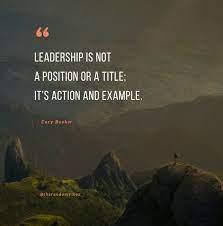 Nigerians have persistently failed to learn from history.
Nigerians have persistently failed to learn from history.
There are a number of living examples who attained higher heights through the efforts of others. And in the process of consolidation, side tracked all those who were responsible for their ascendency.Read this-Helplessness in the Face of Dirt
The living examples have now become part of history.
Sadly, the present occupiers of the higher heights have continually introduced artificial crises to justify the billions of Naira that have been frittered away under the guise of securing lives and property, on a monthly basis.-Legalizing Crime and Criminality
Contracts for the supply of vehicles were facilitated without due process, while such vehicles are not worth the value attached to them. Who are the contractors? Profit from this
The poor state of infrastructure, particularly roads, contradicts the humongous amount reported to have been committed to fixing the roads. In addition, hunger, poverty and the high rate of unemployment are now policies the government at all levels apply in governance.-Landlords and Tenants Associations, Crime and Criminality
Several shuttles abroad are yet to attract meaningful development. However, such trips have depleted the dwindling funds in the treasuries at all levels of government.
Indeed, questionable spending and bloated figures on contracts awarded litter balance sheets, just as the high debt profile has now become a source of concern and worry for all and sundry.-Law Enforcement: The Reactionary Approach -Government Workers-A Subject of Debate
-
The Learning Process
- By solomon2day
- On 03/05/2022
- In Solomon's Column
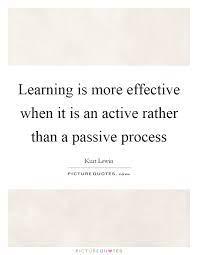 Education revolves around persons, society, things and ideas. It is majorly concerned with the individual in his or her social, physical and spiritual environment.
Education revolves around persons, society, things and ideas. It is majorly concerned with the individual in his or her social, physical and spiritual environment.
In teaching and learning, the above mentioned play significant roles in the molding of a person's character.Read-Helplessness in the Face of Dirt -Legalizing Crime and Criminality
The mindset of those who take up the responsibility of teaching goes a long way in shaping the education of learners.
In addition, the quality and direction of the work of those who are involved in teaching is hinged on their spiritual and moral environment.Sadly, nobody knows how the present crop of teachers were recruited into government service in a number of states.
It is not possible to brainwash the entire population. Perhaps.-Landlords and Tenants Associations, Crime and Criminality
Threats to kill and other uncouth words is now common among young and old Nigerians, who express this evil intentions in their native languages.-Law Enforcement: The Reactionary Approach
This is very strange, as ritual killings continue unabated in different parts of the country.
This development has to do with the mindset of the leadership, teachers and learners.
The suggestion is that those who ought to impart knowledge and those who ought to learn aspire to take up heinous, grievous and violent crimes as means to ends.-Government Workers-A Subject of Debate
-
The Quest to Protect Self-Interests in 2023 and Beyond
- By solomon2day
- On 25/04/2022
- In Solomon's Column
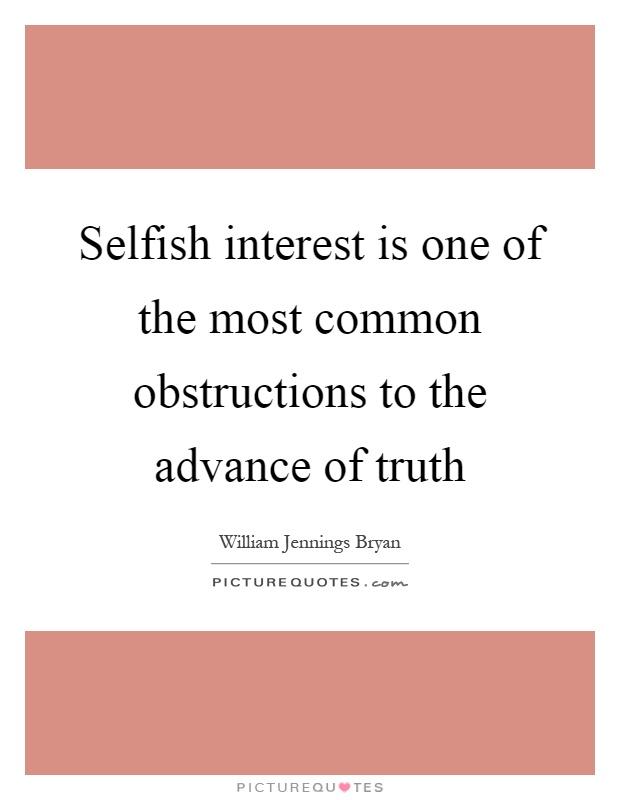 The hundreds of uncollected Permanent Voters Cards(PVC) in the offices of the Independent National Commission(INEC) across Nigeria are reflections of the fact that Nigerians have lost faith in the electoral system.
The hundreds of uncollected Permanent Voters Cards(PVC) in the offices of the Independent National Commission(INEC) across Nigeria are reflections of the fact that Nigerians have lost faith in the electoral system.
Millions of Nigerians are impoverished and disillusioned, to the extent that they now live on handouts given by men and women; who by whatever means get into political offices.The suspicious deaths of unspecified number of Nigerians under unexplainable circumstances, is an indication that Those-in-Charge are evil
Read-Helplessness in the Face of Dirt Read-Legalizing Crime and Criminality
In a bid to meet the crumb requirements in their constituencies and senatorial districts, these men and women resort to corrupt and fraudulent practices.
The unclear ways those in power represent their constituencies and senatorial districts have put a high premium on attaining power for self-interest.-Landlords and Tenants Associations, Crime and Criminality -Law Enforcement: The Reactionary Approach
The suggestion is that the present administration in the country has been overwhelmed by known evil forces; that is why it seeks to influence who takes over power in 2023, to ensure that its secret deals and self-centered interests are protected.
The total goodwill and support that heralded the coming of the present administration in 2015 have evaporated and in its place are frustrations and complaints.-Government Workers-A Subject of Debate
-
The Moles Within
- By solomon2day
- On 04/04/2022
- In Solomon's Column
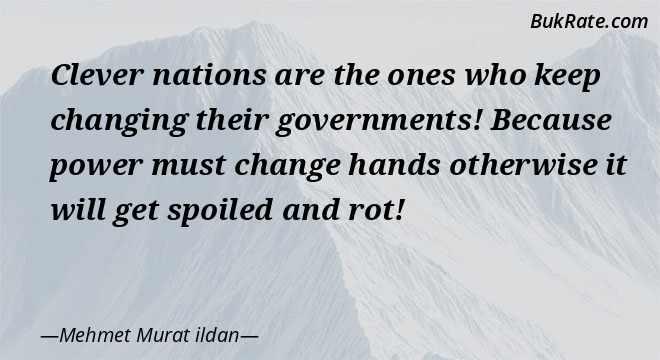 Read-Helplessness in the Face of Dirt
Read-Helplessness in the Face of Dirt
Advice to those in authority revolves around self-centeredness, greed, and treachery.
Indeed, such advice has all along misled the present administration to the point that policies are formulated without consideration of the devastating effect of such policies on Nigerians.-Legalizing Crime and Criminality
Interestingly Those-in-Charge acts on speculations and rumors, without recourse to accessible accurate reports, even though at all levels of government they are favorably disposed to clandestine and evil motives.
The existence of moles in the security system is no longer in doubt, as subversion and inducement are now tools of governance.-Landlords and Tenants Associations, Crime and Criminality
The political and economic policies of the present administration have pitched it against Nigerians, while some of those in the political class have for long promoted the non-performance of those in authority.
Of note is the fact that nothing is new under the sun, what would be, once was and what was once was, would still be.
The past, present, and future comprise the cycle of Life. Indeed.-Law Enforcement: The Reactionary Approach
-Government Workers-A Subject of Debate
-
The Worrisome State of Education
- By solomon2day
- On 28/02/2022
- In Solomon's Column
 The impact by the Federal, State and Local Governments on the acceptable standards of education everywhere, is passive.
The impact by the Federal, State and Local Governments on the acceptable standards of education everywhere, is passive.Indeed, each school ought to have a life and character of its own and be in touch with the people of its immediate neighborhood.
Read-Legalizing Crime and Criminality
Sadly, the quality of teachers recruited to teach in schools has overtime reflected , negatively, in the attitude, behavior and mode of dressing of pupils and students. The role of parents and guardians also feature prominently.
The affected schools lack the necessary amenities and facilitates to aid learning, while most parents and guardians and political representaitives watch helplessly as their children and wards receive fractured education.
-Landlords and Tenants Associations, Crime and Criminality
Overcrowding, poor sanitation and the poor conditions of service of teachers which has resulted in the poor quality of teaching and poor quality of products are among the life threatening traits of these schools.
-Law Enforcement: The Reactionary Approach
The menace of secret cults, hard drugs and examination malpractices are now integral parts of the schools, while the government at all levels, which have all the while played significant roles in the worrisome situation, feign ignorance.
-Government Workers-A Subject of Debate
-
The Impact of Primary Health Care in the Grassroots
- By solomon2day
- On 21/02/2022
- In Solomon's Column
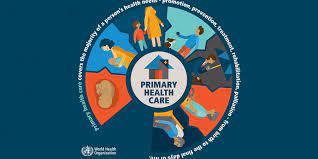 Preventive measures ensures cleanliness and sanitation, the provision, most especially, in the formative years of childhood, the care and feeding which strengthens the body’s resistance against diseases. This is in addition to curative measures that facilitates treatment from diseases.
Preventive measures ensures cleanliness and sanitation, the provision, most especially, in the formative years of childhood, the care and feeding which strengthens the body’s resistance against diseases. This is in addition to curative measures that facilitates treatment from diseases.The Health departments of Local Governments have been found wanting as regards the above mentioned, even though there are regular advancements in social conscience and medical knowledge.
Read-Legalizing Crime and Criminality
The unavailability of supply of potable water in several communities in Local Governments is a major challenge.
Residents resort to doubtful sources to meet their water needs. Constructed boreholes are yet to meet the expectations of the people.
-Landlords and Tenants Associations, Crime and Criminality
Most communities are dirty and unkempt as a result of the docile nature of Local Government workers.
Refuse are dumped indiscriminately and everyone carry on as if all is well.
Children and expectant Mothers have tales of woes to tell at the Primary Health Care centers, while Governments at all levels keep mum.
-Law Enforcement: The Reactionary Approach
The dearth of qualified Medical Professionals in several Local Government Areas of the Federation is a set back, even as the reduction of the incidence of malaria by 80 per cent is a mirage.
Indeed, the Primary Health Care program ought to be the cornerstone of the health policy of a focused administration, however, the lack of appropriate skills by primary health workers is just one among the several pointers that this is not so.
-
Enacting Laws to Preserve Evil
- By solomon2day
- On 24/01/2022
- In Solomon's Column
Peaceful change and superior honesty of the advantages of democracy.
However, the alteration of the truth brings about disillusionment among the people and the continuous worrisome blood shed of human lives is reflecting negatively on governance.
All Governments from time immemorial have been characterized by the twin evils of corruption m and embezzlement of public funds.Read-Legalizing Crime and Criminality
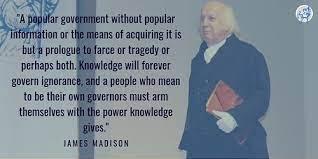
Aspirants to dictatorships believe that the above mentioned are the major features of political life.
In dictatorships, an invariable and inevitable practice, is for the party in power to give jobs to party members, supporters abs hangers on, in return for their loyalty. This is corruption.
-Landlords and Tenants Associations, Crime and Criminality
Indeed, the court cases in the Judiciary are dispensed of by the wishes of the government and not by evidences.
In addition, laws are hurriedly enacted for the preservation of the rot in the system.
In dictatorships, the ruling party takes the position of the state, and ensures that the profession of a particular set of political opinions becomes the first qualification for those in the Civil and Public Service, rather than competence and honesty.
-Law Enforcement: The Reactionary Approach
However, although Governments are liable , there are f weapons fight it in a democracy which are suppressed in dictatorships form is labelled Glieshaltung, unifying the state. This form of corruption is not removed by dictatorships, but remodeled.
Democratic governments, unlike dictatorships, have a moral claim on the allegiance of the people, but today in Nigeria, the impoverishment of the people is the foundation for the condemn able actions and inaction of the government.
Indeed, lawlessness, crime, all forms of criminality and evil are sign posts of daily life across the country.
-Government Workers-A Subject of Debate
-
Wishful Thinking -A Good Government
- By solomon2day
- On 27/12/2021
- In Solomon's Column
 A good government ought to be able to muster enough strength to enforce obedience, in addition to carrying out the duties of governance efficiently.
A good government ought to be able to muster enough strength to enforce obedience, in addition to carrying out the duties of governance efficiently.Justice, perhaps, will flourish when the people who are expected to obey the laws express their opinions on these laws.
A rule of good government, revolves around the fact that aside from the State, nobody else should be equipped to secure obedience and conformity.
In 1934, Austria was plunged into civil war, partly by the failure of its government to prevent political parties from recruiting armies.
Political partiers are already recruting non-state actors.
The prosperity of this country is under the overbearing influence of its natural resources, the politics of its neighbors and the conduct of those in government.
Take note that the goodness of a Government depends on its fitness to solve the myriad of problems confronting it.
Sadly, those in Government have set their personal advantage against and above that of the people, shown undeserved favor to particular groups and refused to permit the people to express their desires.
The foregoing goes against the principles of good government.
Note
In Olorunsogo, Molete, Ibadan, Oyo state, Nigeria, on Saturday, December 25, Kindergartens below 10 years old, who have been well tutored by their parents, led by one Joshua, a child of disabled white garment church owner(No. 1 Kehinde Aderibigbe street unpainted building by the junction, led his gang members to throw stones at an elderly occupant of 3, Kehinde Aderibigbe street, injuring him, after which they threw fireworks(banger) into his apartment, with the overt support of residents of the community.
Criminals are trained by their parents
Also read-Legalizing Crime and Criminality
-Landlords and Tenants Associations, Crime and Criminality
-
Comatose Economy
- By solomon2day
- On 20/12/2021
- In Solomon's Column
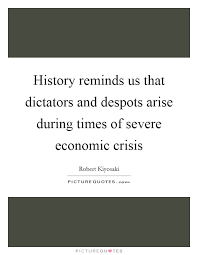 The development of infrastructure in Nigeria has over the years been unsuccessful due to the fact that the country is not an infrastructure-conscious space.
The development of infrastructure in Nigeria has over the years been unsuccessful due to the fact that the country is not an infrastructure-conscious space.In infrastructure development, the quality of the people is crucial,-initiative, prudence, ingenuity and foresight, all combined to guarantee a nation’s development.
Indiscriminate taxation would definitely have negative effects on the psyche of the people and certainly not an incentive for higher productivity.
A close and critical observation of the Nigerian economy exposes the inexperience, ignorance, mediocrity and docility of Those-in-Charge.
The trial and error policies of government has only worsened the coma state of the economy, regardless of the injury time shuttles abroad by government officials to attract foreign investments.
The Nigerian economy today, is a patient well over due for surgery.
Also read-Legalizing Crime and Criminality
-Landlords and Tenants Associations, Crime and Criminality
-
Preferable Choices
- By solomon2day
- On 07/12/2021
- In Solomon's Column
Foreign loans obtained for capital expenditure by Governments could be applied for domestic economic development.
However, this must be in tandem with a well-drawn-out program of action.
Foreign loans primarily serve the needs of the creditor economy and systematically neglect the domestic economy of the debtor country.
It is instructive to note that Japan obtained loans between 195 to 1914, externally, and was at liberty to use the funds in accordance with the dominant ideas of national economic development.
Interestingly, these foreign loans were a relatively minor and not a major source of capital for the Japanese economy as a whole.
During this period, Japan was able to direct between 12 percent and 17 percent of its national income into capital formation.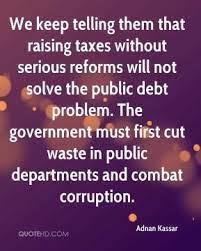
From the 1920s Japan began to receive some form of direct investments from abroad, while the government borrowing from abroad visibly ceased.
The same sequence applies to a number of other countries that have attained a substantial degree of development.
Indeed, foreign loans could be a suitable method of laying the foundation of a country's economic development in the form of public services and social overhead capital.
In the same vein, it is almost possible to substitute foreign funds for domestic saving to the extent that the country's consumption is increased and little or no addition is made to the rate of accumulation.
In Nigeria today, the absence of motorable roads, functional waterworks, and regular electricity supply across the states have all combined to hinder direct foreign investments. Political impediments coupled with induced security situations have given prominence to real estate, land grabbing, indiscriminate taxation, the importation of fairly used vehicles, and hard drugs as preferable choices for economic development.Also read-Legalizing Crime and Criminality
-Landlords and Tenants Associations, Crime and Criminality
-Law Enforcement: The Reactionary Approach
-Government Workers-A Subject of Debate
-
The Standard of Learning
- By solomon2day
- On 24/11/2021
- In Solomon's Column
A moderate standard of learning must include the ability of a child to be able to spell ordinary words, correctly to write legibly and intelligently, to make out or check a common bill, to have sufficient geographical knowledge to know the position of the countries of the world and above all to be sufficiently acquainted with the Scriptures.
In every part of Nigeria today, most children leave school without attaining these standards.
The present system of education at all levels of government is not only bad for the children but also for the teachers. The teaching profession has been debased by the government and the devices of the teachers.

Parents have a major duty to their children, but most parents habitually neglect this major duty.
Untrained teachers and bad methods of teaching, projects by contractors that were not inspected with adequate motive, un-revised or ill-revised policies and the complete absence of all organizations of schools in relation to one another constitute an unspecified number of evils of public and private schools in Nigeria.
The allocations in the budgets of the Federal and State Government over the years to the education sector has had little or no impact on the sector.
Also read-Legalizing Crime and Criminality
-Landlords and Tenants Associations, Crime and Criminality
-
Poverty Stricken Nigerians and $1 billion
- By solomon2day
- On 28/10/2021
- In Solomon's Column
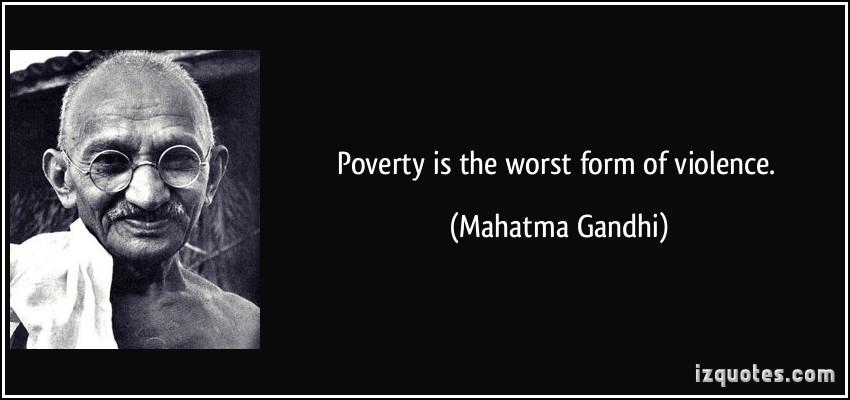 The Poor Report published in 1834 outlined the degradation and inefficiency of the Speenham system that had flourished across England for almost 40 years.
The Poor Report published in 1834 outlined the degradation and inefficiency of the Speenham system that had flourished across England for almost 40 years.
The system encouraged demoralization, rude behavior, laziness, thriftlessness, and immorality of the poor.
The lack of centralization, dependence on the parish initiative, and the absence of a responsive and responsible authority weakened the system.
The resultant administrative anarchy gave rise to the emergence of several petty interests trailed by corruption. Poor relief was a disservice to the poor, a drain on the rich, and a threat to the government.
The Poor Law Amendment Act of August 14, 1834, made no difference but established administrative machinery, giving prominence to three remote impersonal Commissioners in London. Their activities resulted in despondency, disillusionment, and anger among the majority poor.
In present-day Nigeria, the Federal Ministry of Humanitarian Affairs and Disaster Management claims that the Federal Government spends$ 1 billion on the poor annually.
This claim is not only questionable but ridiculous considering the hungry and poverty-stricken looks of millions of sickly, infirm, orphaned, able-bodied, and disabled Nigerians. These Nigerians who are everywhere in the Nigerian space, now believe that the government is not only deceitful but insincere.
Also read-Legalizing Crime and Criminality
-Landlords and Tenants Associations, Crime and Criminality
-
Between Wool and Crude Oil
- By solomon2day
- On 20/09/2021
- In Solomon's Column
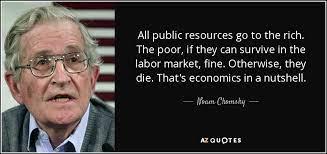 Woolen manufacture was England’s most prominent industry in 1750,while crude oil has been Nigeria’s major income earner for several years.
Woolen manufacture was England’s most prominent industry in 1750,while crude oil has been Nigeria’s major income earner for several years.
Stakeholders in the wool industry were based in the West Riding of Yorkshire,here cloths of medium quality were made, In East Anglia, here coarser fustian were produced and in South west of England,where fine and good quality cloth was made.Woolen cloth was a major export product and as a result the industry was closely regulated.
Production was still in the hands of small masters in the West Riding and East Anglia.
The export price of cloth was fixed as far back as the 10th century,and extraordinary steps were taken to disallow the export of the raw wool.
As the market for woolen cloth expanded,the ownership of capital and the control of credit gained prominence.
The cottage workers were financially incapable of purchasing large quantity of raw materials neither could they afford to sell the finished product on creditor source for market outside their homes.This brought about a more advanced form of capitalism which eventually replaced the cottage industry.In Nigeria today,the main export is crude oil and Those-in-Charge,their agents, proxies and cronies dictate happenings in the oil industry with impunity.
Interestingly, oil bunkering and smuggling is the order of the day and their stock in trade.
In addition,those with the power and means own crude oil refining companies abroad. Crude oil exported abroad for refining,are brought back in refined form as Petroleum Motor Spirit(PMS) for sale to unsuspecting Nigerians.
The unimpressive state of the economy,is perhaps, a sad reflection of the domestic and foreign interests the present administration represents.
Also read-Legalizing Crime and Criminality
-Landlords and Tenants Associations, Crime and Criminality
-
Land, Houses and a Compromised System
- By solomon2day
- On 14/09/2021
- In Solomon's Column
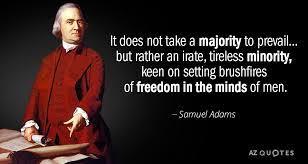 In 1801,1836 and 1854, the General Enclosure Acts were passed.
In 1801,1836 and 1854, the General Enclosure Acts were passed.
The General Enclosure Act of 1845 superseded the Parliamentary committee which examined Enclosure Bills by Enclosure Commissioners, who instead of sitting at Westminister, moved to the scene.
The Enclosure Commissioner presented their findings to Parliament in the form of GeneralBill for passage into law.
The Squire expanded his holdings and expanded to the land of ejected tenants, in addition to common land and waste, while the larger freeholders held on to their claims and increased their holdings.
But this, was, however, not the case for smaller freeholders.
An Enclosure Bill was not enough to drive a freeholder off the land because he had legal claims to his holding.
Aspects of the Enclosure which negatively affected the freeholder include: He had to pay his share of the expenses of the enclosure, which was an expensive process, varying from about 200 Pounds to nearly 500 Pounds. If unable to pay, then he had to sell off the plot of land awarded to him. If he survived, he had to pay for the hedges and fences which every owner was compelled to make round the new fields. If he could not do this, the land would be sold or mortgaged.
A number of the freeholders became tenant farmers, renting lands instead of farming their own.
Most were compelled by economic difficulties to do this, a few thought it profitable to sell their smallholding and rent a large acreage, where rationalized methods could be practiced more economically. Others who sold out abandoned the countryside and channeled the proceeds of the sale into industrial ventures.
The remaining left opted for none of the above alternatives and was compelled to work as laborers on the lands they had once owned or as ''lands'' in one of the new factories.
The foregoing in addition to the infringement of the rights of cottagers and squatters based on customs and the cutting short of the sources of livelihood of people who depended on the open-field village resulted in resistance and violence.
The ruling class rode roughshod of the peasants.
Laws at this period, favored the ruling class, while the living conditions of the farm laborers deteriorated rapidly.
Several died out of starvation and the draconian laws of this period. Game laws favored the ruling class and poaching was an offense with very inhuman punishment, even though the unemployed, agricultural laborers, miners, and ribbon weavers depended on poaching for survival.
Between 1799 and 1800, influenced by the Enclosure Act and industrialization, destitution had become a challenge of dangerous dimension.
Indeed, the Poor Law, the Law of Settlement, the Game Laws, and the Enclosure Laws, all contributed greatly to the impoverishment of the people who constituted the majority.
Public attention was attracted to the predicament of the poor by humanity and public interest.
In Nigeria, today, land and property owners have been and are still been dispossessed of their land and houses by Those-in-Charge, their agents, proxies, and fronts, with the desperate collaboration of a heavily compromised legal and law enforcement system.Also read-Legalizing Crime and Criminality
-Landlords and Tenants Associations, Crime and Criminality
-
The Unwritten Policy
- By solomon2day
- On 06/09/2021
- In Solomon's Column
 The value of land in England had political, social and economic undertones.
The value of land in England had political, social and economic undertones.Land was mandatory prerequisite for election into Parliament,while in the counties,was a requirement for the right to vote.
During this period,the landed class had political power and interestingly, Parliament was controlled by landowners.
Furthermore,in the local sphere, the Justice of Peace-the squire-was the most important personality.He was the largest landowner in the village.
As Magistrate and leader of the local society,he combined political and social power.
In addition,the owner of the land made profits by selling its produce or leasing the land for high rents to tenant farmers.

The foregoing resulted in the the emergence of wealthy traders,who bought land as investments which was converted as a means to political power and social ostentation.
The House of Commons, influenced by a few big landowners, sponsored bills which became laws.
These laws were against the wishes of a large number of small farmers.
Among these bills that were passed into law,was the Bill of Enclosure
The economically marginalized landowners had inadequate means toward off the desperation and determination of their more substantial neighbors to enclose the land.
In Nigeria today,land grabbing and dubious estate development by all available means is an unwritten policy by Those-in-Charge at all levels of Government.
Private properties have been annexed, structures demolished and alternative ones erected in a amazing time frame.
Indeed,looted funds and funds from doubtful and questionable sources are now channeled to land-grabbing and estate development.
Sadly, the deliberate compromise of the legal and security system,indeed,encouraged this unwritten policy,while violent crimes have trailed events in the land and property sector.
Also read-Legalizing Crime and Criminality
-Landlords and Tenants Associations, Crime and Criminality
-Law Enforcement: The Reactionary Approach
-Government Workers-A Subject of Debate
-
Avoiding Succession Pitfalls
- By solomon2day
- On 30/08/2021
- In Solomon's Column
 William the Conqueror and Henry 1 of England were leaders whose authorities were to a large extent personal and not in any way attributable to the dynamic structure of the Government.
William the Conqueror and Henry 1 of England were leaders whose authorities were to a large extent personal and not in any way attributable to the dynamic structure of the Government.
Both of them had the extraordinary force of character with despotic tendencies.
Interestingly, when Stephen, a man of feeble traits, succeeded Henry, civil war broke out. This was as a result of a succession dispute, which snowballed into a confusion of an unimaginable dimension culminating in the termination of the royal court. After the demise of Henry 1, the Government drifted into anarchy.
However, the Royal court was restored and extended by Henry 11.
Henry 11 was the son of Geoffery Plantagenet, Count of Anjou, and Eleanor of Aquitaine.
His personality impressed those of his time, while his friends and enemies were of the consensus that he was a man of ways, means, and passions beyond the imagination of average men.
Henry 11 had an eye for details of law and administration and indeed relished legal argument even as he sat in judgment with delight.
Personalities with similar behavioral attributes abound in the countries of Africa today, Nigeria inclusive.
The unabating crimes-killings, kidnappings(for ritual purposes inclusive), and armed robbery by criminals, in addition to the sustained underdevelopment, are all pointers to the fact that the leadership has veered off the road as the country makes preparations for the diamond jubilee celebrations.
It is now the duty of the people to identify such personalities and ensure all is done to avoid the pitfalls of the Norma period. -
PMS-Save Poor Nigerians from Hardships
- By solomon2day
- On 24/05/2021
- In Solomon's Column
 The body language of the helmsmen at all levels of government indicates nonchalance on their part in governance, deceit, and insensitivity to the plight of the less privileged.
The body language of the helmsmen at all levels of government indicates nonchalance on their part in governance, deceit, and insensitivity to the plight of the less privileged.
Indeed, Those-in-Charge is only interested in their own selfish interests and convenience, while feigning ignorance about the predicament of the poor, the sick, the aged, the youth, and above all, the absence of basic amenities.
Of worry is the fact that The-Powers-That-Be now engage in scare strategy to justify the removal of the subsidy on the Premium Motor Spirit(PMS),
Even though that those who are proud owners of refining companies across the world are well known.
Nigerians now seek to know what the Gross Domestic Product(GDP), the standard of living, and the wage system are, in comparison with the present cost of the PMS.
To millions of Nigerians, the subsidy is a contrived deception that exists only in the imagination of its creators.
Indeed, the removal of the subsidy without stabilizing the exchange rate shall yield no result.
A responsible and responsive leadership ought to put in place specific ''absorbers'' and measures before the planned removal to save poor Nigerians from avoidable hardships-a Kongo of rice now sells for N900.00, Beans N1,000, and Garri N700.00 among several other edibles which have gone beyond their reach. -
Ominous Times
- By solomon2day
- On 13/04/2021
- In Solomon's Column
 Those in-Charge are increasingly having difficulties resolving the myriad of problems facilitated by their creations, which collectively have put distraught Nigerians in a precarious situation.
Those in-Charge are increasingly having difficulties resolving the myriad of problems facilitated by their creations, which collectively have put distraught Nigerians in a precarious situation.
Without a doubt, the insecurity in the land is one among their several creations, that have over time defied any meaningful solution in the public domain, while killings, kidnappings, and armed robbery continue unabated.
Terrorists, over the weekend, attacked a United Nations humanitarian aid facility in Borno state, which has created an impression that the country is not humanitarian aid and investment-friendly.
774, 000 Nigerians who were engaged not long ago by Those-in-Charge are already protesting the non-payment of their N20,000 stipends.
Those-in-Charge have resorted to borrowing money from the Apex bank. This is an indication that ominous times are here. Nigerians are well informed.
-
Insecurity and Investments
- By solomon2day
- On 09/02/2021
- In Solomon's Column
 It is not in dispute and contention that when killings, kidnappings, armed robberies, and violence characterize daily living, investments would be at zero levels.
It is not in dispute and contention that when killings, kidnappings, armed robberies, and violence characterize daily living, investments would be at zero levels.Investors are now very suspicious and cautious.
Surprisingly those in charge at every level of government prefer to shield and protect the criminals who have committed heinous and grievous crimes against humanity, rather than do the same for helpless, defenseless, and grief-stricken citizens.
Indeed, happenings and unfolding events hinge the insecurity in the land to the selfish and evil interests of certain individuals.
Obviously, the criminals are the creation of those in charge and it is imperative that they are brought to justice, as the activities of the criminals have already started counting against the ''those who pay the piper.'' This, of course, would, in the long run, have a negative impact electorally.
Sadly, the high cost of living occasioned by the unfavorable policies of the government, ignorance, and insincerity, have prompted market men, women, and other traders to further trouble the disillusioned populace.
Consequent to the havoc wrecked by insecurity, it would be difficult, if not impossible for those in charge to deliver the dividends of democracy within their constitutionally stipulated tenure.
Interestingly, governance now thrives on lies, deceit, and propaganda. -
The Courts and Obedience of its Orders
- By solomon2day
- On 02/02/2021
- In Solomon's Column
 In this clime, a court ruling no matter how illegal it is remains a court order.
In this clime, a court ruling no matter how illegal it is remains a court order.
However, for a court order to be obeyed, the court issuing such an order must have the competence to issue the same.
Judgments emanating from courts in Nigeria have over time precipitated rather than solving problems.
A commonplace is moving from one jurisdiction to shopping for a convenient jurisdiction where to obtain an order for sinister purposes.
Most of the time the powers that be consent to such illegalities, while the police play out the scripts of the Executive.
Officials of the Judiciary are helpless since their survival, these days, depends on the designs of the Executive, even as the Legislature vigorously pursue self-driven interests.
The obedience of court order in this dispensation is selective and largely depends on the mindset of the power that is at different points in time.
This has no doubt tainted the image of the leadership at all levels to the extent that credit is no longer synonymous with good governance.
The courts are now a scourge to Nigerians as hopes give way to despair. -
Nigerian Children's Place in a Sane Society
- By solomon2day
- On 04/01/2021
- In Solomon's Column
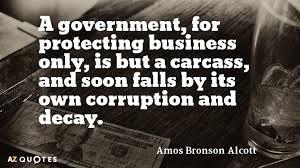
 Most public primary and secondary school students learn in environments that are not encouraging in Nigeria.
Most public primary and secondary school students learn in environments that are not encouraging in Nigeria.
The facilities have been stretched to obsolete conditions as a result of improper planning by the government at all levels.
Considering the dilapidated toilet facilities in several of these schools and the absence of potable and drinkable water, the potential outbreak of an epidemic cannot be rule out.
Teachers are no longer dedicated to duty due to their nightmarish working conditions.
Cultism has taken root in most of these schools, while ''armed robbers'' in school uniforms dot the nooks and crannies of every par of the country.
Of worry, is the lack of sincerity on the part of the government in the implementation of programs and policies.
On the part of the private schools, moral decadence, which is a major feature in the public schools, the issue, while examination malpractices and fraud are also noticeable signposts.
Furthermore, the attitude of the government and people in a number of states in the country downplays the reality of the coronavirus pandemic, while the present state of several schools in these states, the non-availability of potable water, and the dilapidated facilities could expose students and teachers alike to serious health hazards, the coronavirus pandemic inclusive.
Or worry also is the fact that several communities in Nigeria are under siege by various categories of criminals. The sight of young boys, in the midst of adults, smoking Indian hemp is now commonplace, majorly at primary schools without perimeter fencing.
In addition young girls, have now taken to prostitution on the promptings of their mothers and guardians to make ends meet. A visit to several beer parlors, ''Ogogoro'' joins scattered all over the country shall be instructive. Such include communities Molusi, Solanke, Oyegbami, Oshodi, Olorunsogo, Alko/Barracks, Felele, Scout Camp, and others in Ibadan Oyo state.
If an urgent step is not taken to salvage the almost hopeless situation, millions of Nigerian children may no longer have a place in a sane society. -
Laminated Papers As National Identity Cards
- By solomon2day
- On 06/05/2019
- In Solomon's Column
On Wednesday, 28 September 2011, the Federal Executive Council approved N30.066 billion for the accelerated implementation of the ‘back-end’ component of the National Identity Management System(NIMS).
The delivery date of the NIMS was December, 2013.
It should be noted that the National Identity Management Commission(NIMC) was to receive a sum of N23.074 billion, in the last quarter of 2011, for the procurement of the redesigned multi-application National Identity Card.
Before this time, the National Identity Card Scheme executed by SAGEM was a failure.
 The NIMC Act №23 of 2007 mandated the NIMC to establish a reliable, secure and ‘scalable’ identity management system that makes use of advance Bio-metrics technologies to identify every individual in Nigeria in unique ways.
The NIMC Act №23 of 2007 mandated the NIMC to establish a reliable, secure and ‘scalable’ identity management system that makes use of advance Bio-metrics technologies to identify every individual in Nigeria in unique ways.Despite the colossal amount government has expended on the project, most Nigerians, who have registered have only laminated papers to present where necessary.
Although choice brand of papers serve the same purpose, on a condition that negotiated payments are made to the relevant officials.
The insinuation is that the laminated papers are just open cover ups for the failed project.
The expectations of Nigerians were that , upon completion of registration, physical cards would be issued. This is not the case.
 At the NIMC registration center at the University College Hospital(UCH)Ibadan, Nigerians are made to pay N100.00 for the registration form, while N500.00 is the amount for the change of name after registration and other unspecified fees for the lamination of the registration slip. There are other hidden fees.
At the NIMC registration center at the University College Hospital(UCH)Ibadan, Nigerians are made to pay N100.00 for the registration form, while N500.00 is the amount for the change of name after registration and other unspecified fees for the lamination of the registration slip. There are other hidden fees.The NIMC officials also instruct people to write their Bank Verification Numbers(BVN) on the form. Nigerians want to know the reason why this is so ?
Of worry, is the rude behavior exhibited by the NIMC officials in a sizable number of centers, which over time has discouraged several Nigerians from having faith in the project.
Indeed, NIMC proudly insists that over the years, it has issued out millions of the National Identification Numbers(NIN), even though it has continuously avoided making categorical statements on the Identity Cards.
Nigerians have the impression that the project is one among several white elephant projects of government.
-
Governing the States of Nigeria in Filth
- By solomon2day
- On 30/04/2019
- In Solomon's Column
Most state Governments in Nigeria have over the years failed to ensure that the environment is habitable .
Even though the state governments introduced task forces to enforce environmental regulations and expended large sums of money on sanitation, the environment in most states still remain dirty.
Interestingly, Waste Management Boards in the states have done little or nothing to improve the worrisome situation.
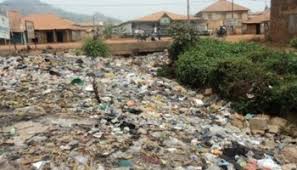 However, the boards have been up beat in seemingly generating revenue for government, despite the poor state of the environment.
However, the boards have been up beat in seemingly generating revenue for government, despite the poor state of the environment.Of worry, is the recycling of quack ideas, which has resulted in the conversion of the multi-billion Naira Ogunpa River Channelization scheme in Ibadan, Oyo state to a major refuse dump.
No doubt the negative habits of the people have for long been a major factor that has contributed to the poor state of the environment, just as government seeks solace in its feeble efforts to reverse the ugly trend.
Heaps of refuse at every available space constitute a major feature in most cities.
 Indeed, the irregular payment of salaries by state Governments, has further encouraged public servants to compromise environmental laws for monetary gains.
Indeed, the irregular payment of salaries by state Governments, has further encouraged public servants to compromise environmental laws for monetary gains.Sadly, environmental mismanagement in all its ramification has resulted in unreported cases of bad health conditions, with origins from identified environmental nuisances.
It should be noted that most state governments have displayed the lack of political will to decisively enforce policies on the environment.
Political considerations have, not surprisingly, overwhelmed the governance abilities of a sizable number of political office holders, to the extent that the absurd is now the order of the day.
For instance, in the Olorunsogo, Molete area of Ibadan a landlady of a two storey building, Mrs. Ajayi and her tenants of №5 Kehinde Aderibigbe street, have for several years converted the building beside theirs(№3) to a refuse dump, where they also deposit excreta.
Even though the Environmental Health Officers in charge of the community are aware of the ugly development, monetary considerations have beclouded their quest for professionalism.
Without doubt, governance cannot go on smoothly in a dirty environment, especially when lawlessness and criminality are the trend. This is the situation in most states of the federation.
-
Nigeria and Its Health Challenges
- By solomon2day
- On 29/03/2019
- In Solomon's Column
 The Federal Government has lost grip of the health sector.
The Federal Government has lost grip of the health sector.Nigerians now seek God’s intervention in issues pertaining to health care delivery.
Most public hospitals are now designated mortuaries, where Nigerians are left to die, rather than recover from aliments.
Interestingly the citizenry now resort to self-medication and traditional healing therapy as a result of their poor economic status.
Sadly, most health workers lack the requisite skills needed to be proactive on their jobs.
All these put together has resulted in high infant and maternal mortality and the prevalence of several diseases.
In some hospitals, patients are required to buy sachets of water for medical tests.
Government at all levels ought to set goals for a better health care, but this is yet to occur.
Nigerians hope to experience an increase in life expectancy, while also coming to terms with high and substantial levels of immunization against all vaccine preventable diseases and attaining national self sufficiency in vaccine production.
 Up till this moment, government at all levels are yet to ensure that universal access to primary health care becomes a reality, in terms of support, community engagement and participation.
Up till this moment, government at all levels are yet to ensure that universal access to primary health care becomes a reality, in terms of support, community engagement and participation.Government has not performed commendably in the eradication, control and prevention of epidemic diseases. Why ? The corruption and rot in the system. Perhaps.
Indeed, it is possible for the three tires of government to achieve adequate supply of essential drugs to all health facilities, but activities of government officials have become the major impediment.
It is only in an enabling environment, that the government would be able to resuscitate a viable secondary health care system.
Unfortunately, several uncompleted projects characterize health facilities across the country.
Of disturbing worry, is the fact that commercialization of some hospitals’ functions, is strangulating the already impoverished population, just as it is doubtful if existing health policies can take care of exigencies of this present time.
-
Nigerians and Their Quest for Affordable Education
- By solomon2day
- On 18/03/2019
- In Solomon's Column
Vital literacy indicators reveal a deplorable condition in the Nigerian educational system.
Indeed, adult literacy rate is embarrassing, while the number of out-of-school children has reached an all time high rate.
Trailing the fallen standard of education at all levels, is the ever increasing rate of drop-outs today.
With particular reference to the Secondary and Tertiary levels of education, cultism, gangster ism and prostitution have become the popular choice for undergraduates and students in educational institutions across the states of the federation.
Shortage of qualified teachers, lack of teaching aids,recreational facilities in schools and basic infrastructure are just a few among the sore points of schools in Nigeria.
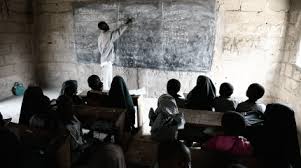
Of serious worry are the poor sanitation, overcrowding in class rooms, poor conditions of service for teachers, which has resulted in the poor quality of teaching and poor quality of products, all put together, have become negative signposts of the school environment.
Sadly, poor educational management, a reflection of the poor inter-sectoral allocation, multiplicity of agencies with duplicated functions and inadequate coordination, have all made education administration in most states questionable and fraudulent.
The weak support for education by government at all levels, is a manifestation of the ineptitude of government officials.
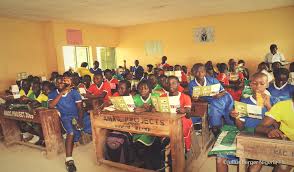 Government’s deliberate neglect in the management of the education sector may eventually result in the total collapse of the public education system.
Government’s deliberate neglect in the management of the education sector may eventually result in the total collapse of the public education system.The shortcomings of government has heightened the stakes for private investors and made the education sector very lucrative.
With the profit motive as the major emphasis and driving force, educational institutions are now germinating like pure water factories in very nook and cranny of Nigeria, while at the same time, such institutions are turning out educationally unacceptable products.
With all these in mind, Nigerians are urgently asking :
- Can government at all levels make education available, relevant, accessible and affordable to all Nigerians ?
- Can government at all levels ensure immediate and long term social and economic returns from education ?
- Are public educational institutions, considering their present state, competent to produce skilled manpower ?
Answers to these questions are in the public domain for everyone to draw conclusions.
-
Is One Week Enough for INEC To Address The Glaring Lapses ?
- By solomon2day
- On 18/02/2019
- In Solomon's Column
There is widespread discontentment across Nigeria, against the postponement of the Presidential, National Assembly, Governorship and the State Houses of Assembly elections by the Independent National Electoral Commission(INEC) .
Nigerians are fully convinced that there is a lot of foul play, regardless of the reasons put forward by the INEC Chairman, Prof. Mahmood Yakubu.
Interestingly, the Minister of State for Aviation, Sirika Hadi insisted that the INEC Chairman's claim that bad weather contributed to the postponement of the general elections, was a lie, while stressing that airports across the country were directed to remain open round the clock.
Before the eventual postponement, Nigerians were subjected to funny treatment by INEC staff, in their bid to register and collect their Permanent Voters Cards(PVC) in several parts of the country.
Sadly, a large population of Nigerians are yet to collect their PVCs , just as INEC has refused to make public the total number of PVCs that have been collected by prospective voters nationwide.
Of note, is the fact that Prof. Yakubu has admitted that the Senatorial candidate of the All Progressives Congress(APC) for the Niger East Senatorial District of Niger state, Mohammed Sani Musa, was a registered contractor with the commission.
Musa's company, Activate Technologies, is responsible for the supply of the machines that INEC used to print the PVCs.
Even though Prof. Yakubu asserted that all is well, this is far from the truth, considering unfolding events that has made it very glaring that the electoral process has been compromised.
Of great worry, is that fact that the INEC headquarters has recalled all the Smart Card Readers(SCR) from all its state offices in the country. Why ?
This is the reality of the present time.
The electoral process had long been designed to suit the wishes of the ''POWERS THAT BE'' and the postponement was just a face saving strategy.
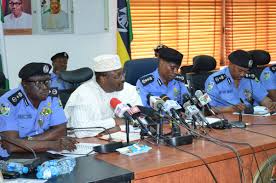 Most members of the National Youth Service Corps(NYSC) recruited as Ad hoc staff by the electoral umpire, had earlier on influenced their NYSC postings to choice states, while a negligible number of those who were lucky to be recruited by INEC, were stranded on the day of the postponed elections.
Most members of the National Youth Service Corps(NYSC) recruited as Ad hoc staff by the electoral umpire, had earlier on influenced their NYSC postings to choice states, while a negligible number of those who were lucky to be recruited by INEC, were stranded on the day of the postponed elections.They had no accommodation, the commission did not release their allowances and most of them were unable to locate the polling units they were posted to.
In the Oyo state office of INEC, a day before the postponed general elections, Journalists and Observers were sighted in business centres making frantic efforts to laminate their passport photographs on the papers, officials of INEC gave to them as accreditation.
Sadly, these papers might have got into the hands of individuals who have perfected same for an unknown agenda, although the commission received adequate funds to facilitate a convincing accreditation exercise for Journalists and Observers.
A Lagos Lawyer argued that it was illegal for the Acting Inspector General to restrict the movement of people and vehicles during elections.
The action of the Acting Inspector General might have made the electorate to lose confidence in the system.
Also disturbing, is the issue of the head of the electoral body donning the face cap with the logo and colours of the ruling party in a Television documentary.
Top politicians, speaking incognito, argue that the letter the Attorney General of the Federation, Abubakar Malami wrote to the commission, requesting for the postponement of elections in Zamafara state and the lingering crisis in the ruling party's Rivers state chapter, contributed to the sudden decision of the umpire to shift the date of the general elections.
Indeed, the decision of the commission to resort to postponement is a demonstration of the high level of incompetence of those who call the shots in the commission.
With several lapses still waiting in the wings to pop up and the pretense of the commission that it would correct the situation within one week , it is doubtful if one week would be enough for the commission to address the several shortcomings, man-made or designed, to enable Nigerians elect a new generation of leaders that would steer the troubled ship of governance for the next four years.
-
The Nigerian Economy and Governance
- By solomon2day
- On 26/11/2018
- In Solomon's Column
Nigerians are proud to live in a country with a land area of923,773km 2, with varied vegetation and types of soil, suitable for various agricultural purposes.
In 1960 and the years following, up till the early 1970s, Nigeria's economy was between the agricultural friendly ''grassroots'' and the ''white collar'' city oriented centre. All that had to do with the production of goods were concentrated in the city, while a large percentage of Nigerians resided in the villages, with farming as their major occupation. The villages, then, lacked major amenities of life.
Governance during this period, was with a chain of challenges. Then, most of the earnings from export were from agriculture, while 65 % of Gross Domestic Product(GDP) also came from the sector. Nearly 50 % of Government revenue in 1960 could be traced to agriculture.
Today, as in the 60s, the provision of quantitative and qualitative education, quality health care delivery and the absence of social and economic infrastructure, are just a few in the long list of challenges that confronts Government.
In 1973, when crude oil emerged as the mainstay of the economy, government took a ''nap'', having noticed the 'light at the end of the tunnel '.
That 'nap', was at great cost, as can be seen in the unfolding events of the present time. In 1980, crude oil constituted 81.1% of Government revenue and 96.1% of export earnings.
Indeed, the growth of the economy was tied to projected earnings from crude oil exports, this was despite the fact that signs had began to manifest on the imminent collapse of crude oil prices in the international market.
With fiscal and current account deficits, occasioned by falling crude oil prices, resulting in internal and external imbalance, the only option open to Government is to borrow from international financial institutions.
-
Governance in Nigeria : The Unanswered Question
- By solomon2day
- On 07/08/2018
- In Solomon's Column
Nigerians have for several years embarked on the journey to promote a just and equitable society without encouraging results.
This is regardless of the countless number of prominent citizens, who belong to the private and public sectors, including the civil society community at home and in diaspora.
Sadly, most of the innovative ideas and policy options of governance have failed woefully to serve as springboard for the country's social, political and economic emancipation from the vicious circle of underdevelopment.
Of note, is the fact that Nigeria is yet to attain the status of a free, dynamic and knowledge based economy, this is just as there are no genuine signs of commitment to fairness, equity and justice.
The foregoing stems from bad and improper governance at all levels of government.
Decisions and policies of government are guided by self-centered ideals and obsessive greed.
Most political office holders lack ideology and principles to recommend a soothing cure for the country's ailments, this is convincingly reflected in the very weak economic and political reforms which are without doubt not the compass for a new world order.
The myriad of problems confronting the country amplifies the need for transparent and incorruptible institutions to decisively address pressing issues which have taken a political turn.
Those institutions that were in place from time immemorial, might not have achieved the purpose for which they were established, even though enormous financial resources heralded their establishment.
The major questions on the lips of most Nigerians, include, Who is saddled with the responsibilities for policy formulation and governance under the present dispensation?
Is it the state or does it rest on the exploitative hands of a few private individuals ?
These questions remain unanswered, definitely not one of the high points of Democracy.
-
The Progressives : Then and Now
- By solomon2day
- On 18/07/2018
- In Solomon's Column
Chief Obafemi Awolowo was a political leader of Yoruba extraction, who lived by example.
His leadership impacted positively on the Yoruba people, in all spheres of life. However, it is doubtful if those who hold sway in this dispensation followed his footsteps.
Chief Awolowo had a formidable political structure that outlived him. In his time, politcal meetings were held at his Ikenne home in Ogun state.
After the passing on to glory of Chief Awolowo, in the days of military rule, Chief Adekunle Ajasin, took over the mantle of leadership and meetings were held at his Owo home, Ondo state.
During this period, the National Democratic Coalition(NADECO) came into being.
After Chief Ajasin did his beat, Pa Abraham Adesanya took over the structure up till the end of the military era.
In the course of Pa Adesanya's leadership, those who could best be described as pseudo-Awoists and pseudo-democrats, were accepted into the fold, sadly, the true and real progressives were barred, due to the fact that they took up apointments in the military regime of the late despot, Gen. Sani Abacha.
Now known as Afenifere, the group restricted its membership, while maintaining a closely knit relationship with the Alliance for Democracy(AD).
At a glance, Afenifere was composed of the first generaton Awoists, the second 11 and the unknown elements.
The unknown elements eventually hijacked the structure through unconventionl means.
Of the first generation Awoists, only a one time Governor of Lagos state, Alhaji Lateef Jakande is still alive.
However, Chiefs Bisi Akande and Segun Osoba belong to the second 11, while others were not yet into reckoning during the functonal period of the group
At a point in time, Chief Ebenezer Babatope, the Director of organization of the Unity Party of Nigeria(UPN) then, stated that in 1982, during the last convention of the UPN, Chief Awolowo expressed the hope that a time will come, when the good elements in the conservatives will join the good elements in the progressives to form a synthesis.
But present happenings in the political sphere has defied this theory, rather polarization and division are tools that have brought about the present scheme of things.
Of note, is the fact that the progressives of the time past, embarked on laudable programes such as free education, to empower the Yoruba people.
Sadly, capitalist inclined policies, nocturnal ideals and preferences are the working tools of today's leaders in the South-west geo-political zone of Nigeria, to the chagrin of the disillusioned and impoverished people.
The new definition of the progresives includes, but is not limited to, the paymnt of school fees in Primary and Secondary schools, introduction of mulitple tax regime and the preference for mediocrity and people with doubtful educational qualificatons, to carry out government duties. So sad.
-
Restructuring and the Quest for Igbo Presidency
- By solomon2day
- On 09/07/2018
- In Solomon's Column
In 1998, the apex Igbo socio-cultural organization,Ohaneze Ndigbo restructured, 12 months after, the structure became a platform to campaign for Igbo presidency.
Again,in 2004, the socio-cultural organization restructured,even though the general elections came up in 2007. Nigerians were of the opinion that the presidency was for all Nigerians.
Their arguments were hinged on the fact that no section of the country,was excluded from aspiring to the highest position in the land.
Indeed,there has never been and there is still no constitutional provision or clause that allows for the exclusion of any tribe to vie for the presidency.
Interestingly, Ohaneze, is a South East Geo-Political zone based socio-cultural organization, which projects the interests of Ndigbo in particular, and the rest of Nigeria in general.
Although, at a particular point in time the organization was accused of been elitist.
The objective, according to a cross section of those who are members of the organization, is to ensure that the ordinary man in the street is a member.
However,they argue that anybody who is Igbo or of Igbo extraction,within Igboland or in Diaspora,is considered a member of Ohaneze. Such individuals, according the organization can attend meetings without a third party making introduction.
'You can come to an Ohaneze meeting without anybody introducing you. If there is any need to introduce yourself, you get up and tell them who you are'', they stated.
Sadly, this is not the situation in the diaspora, including Oyo state.
In an interview in 2004, the President of the Anambra state chapter of Ohaneze, Dozie Ikedife,had insisted then, that restructuring was on course, irrespective of any presidential election.
'If it happens that no Igbo man is installed as President this time around, Ohaneze will still play its role to ensure that a President is installed in this country and that things move on peacefully with a sense of equity, fair play,justice and enhancement of the sense of belonging for all'', Ikedife had declared.
The then President of Ohaneze, Prof. Joe Irukwu was consistent in advocating for Igbo presidency, even though the hidden ambitions of his kith and kin at home and in diaspora militated against his advocacy.
However, a one time Governor of old Anambra state, Chief Christian Onoh,once observed that state Governors of the South-East geo-political zone have always worked at cross purposes, when it involved the Igbo Presidential project.
'We should tell ourselves the home truth-our Governors are not united',Chief Onoh had noted.
Sadly, some members of the political class in Igboland, project Igbo Presidency in broad day light, while vigorously facilitating an agenda at variance with the collective interests and aspirations of Ndigbo,under the cover of darkness, 'when NEPA don take light'.
Since no tribe or ethnic group has been excluded from Nigeria, the debate about who occupy the number one seat in 2019 and beyond,should be for all and sundry. Perhaps
-
National Identity, Ethnic Thoughts and Nation Building
- By solomon2day
- On 02/07/2018
- In Solomon's Column
The financial greed of political exposed persons in Nigeria is a major problem of nation building.
Indeed, when Chief(Dr.)Olusegun obasanjo was the President, the then Inspector General of Police, Tafa Balogun, his kinsman, was put forward as a model to discourage financial crimes.
Till date, the Former Inspector General's travails is a talking point.
Nigerians are laready exhibiting intolerant behaviour,perhaps, in violation of the 1999 amended constitution, to oppose a second term presidency for President Muahammadu Buhari. Why ? The anti-corruption fight in this dispensation has not been impressive among other neglected aspects of governance. The former Secetary to the Government of the Federation and several other high profile public office holders remain credible reference points.
As mediocrity becomes the popular choice for political office holders at the Federal, State and Local Government levels, hitherto vibrant institutions have been weakened to damaging and ridiculous levels.
The President's constitutional breaches have come under the heavy 'fire power' of moral indignation by milions of Nigerians, with the President's media handlers reacting feebly and unconvincingly.
Interestingly, Nigerians have interpreted the statement creditied to the Director General of the National Identity Card Management Commission(NIMC) that embarrassment awaits Nigerians who have not registered for the Nationa Identity Number(NIN), as an open threat and subtle intimidation.
The Commission had earlier in the year, lamented that lack of funds was limiting the commission's plans to produce the National Identity cards for Nigerians. Why the sudden desperation to ensure that Nigerians obtain the NIN ?
Part of the answer lies in the statement by the then Deputy Speaker of the Delta state House of Assembly, Pius Ewherido in 2005, ''Looking for an ethnic plaform, I think negates the entire concept of Democracy''.
Also of worry, is the alarm raised by the Independent Natonal Electoral Commssion(INEC) that the Permanent Voters Cards(PVC) are been cloned, this is coming on the heels of reports that desperate politicians are already purchasing the PVCs from uninformed Nigerians at the grass roots.
The situation is made more confusing, with the satement of the Minister of Communications, Barrister Adebayo Shittu, that there are threats to the country's cyberspace. How ? And why is it coming at a time that elections are coming up in Ekiti and Osun states, while the 2019 general elections is alos around the corner. Perhaps, Government is stll hiding a lot from Nigerians.
-
The Mindset of the the Government Worker in Nigeria
- By solomon2day
- On 15/06/2018
- In Solomon's Column
In the present time, in Nigeria only a handful of civil and public servants take their duties seriously and wholeheartedly.
Their attitude is directly related to the position of government in the three tiers on issues of workers' welfare and conditions of service.
Indeed, the focus of those on government payroll in any given line of duty or assignment is what is in it to gain and not what is ought to be done. In other words, selfless devotion to duty is no longer there.
Assigned tasks in the Ministries, Departments and Agencies are no longer done properly and promptly. A sizable number of workers, no longer possess senses of responsibility. Who is to blame ?
For several years now, the monster of indiscipline has continued to fester. with due process as the major casuality. The struggle for ''power'' among government workers is the most prominent activity going on in most offices.
Sharp practices are the order of the day, this is partly as a result of the sectional Democracy in vogue today.
At the Federal , State and Local government levels, workers, who are co-opted to generate revenue for government, make good use of the opportunity to protect their future .
The source of inspiration for these category, of workers include stories of government workers who retired in 2010 and are yet to be paid their gratuities.
The popular discussion in most government offices is the backlog of salary arrears owed workers, even though Comrades Ibrahim Yinsua Olayiwola and Adejare Ahmed of the Oyo state branch of the Association of Senior Civil Servants of Nigeria(ASCSN) are of the opinion that workers should be devoted and committed to duty, to avoid negative reports from their superiors.
The worrisome question everywhere at present is : has the insensitive attitude of government ensured workers devotion and commitment to duty ?
-
The Position of the State and the Killing of its Citizens
- By solomon2day
- On 09/06/2018
- In Solomon's Column
Adolf Hitler labelled the extermination of the Jews in Europe, '' the final solution'', while the military dictatorship in Argentina which embarked on an unprecedented killing of its citizens code named same ''The process of National Integration''.
The activities of insurgents and armed herdsmen which have claimed thousands of livers are similar to the above mentioned/
Between 1976 and 1983 millions of citizens lost their lives in Argentina. Death squads operating under secret circumstance and the cover of the state murdered about 11, 000 people, which are now described as ''The Disappeared''.
Two million people escaped persecution, while hundreds of babies born to ''The Disappeared'', were either sold, bartered or murdered.
Indeed, happenings in several states of Nigeria, including Benue, Taraba, Plateau, Kogi, Nasarawa and Kaduna, indicate that government is fully aware of the insecurity, even as the killings continue. This calls for concern.
On March, 23, 1976, General Jourge Videla, Head of the Argentine Army overthrew the government of Isabelita Peron, a former night club dancer. No civilian government had completed its tenure, excerpt for Juan Peron's first term in office.
General Videla hinged his action on the chronic inflation and high rate of unemployment that trailed Isabelita's government.
However, in Nigeria, a retired Army General calls the shots, even though the country still experiences symptoms of economic recession, mass unemployment, corruption and insecurity.
The Ejecrcito Revolcionario del Pueblo(ERP) and the Montotneros, took to kidnapping and killings. This plunged Argentina into crisis, in Nigeria, kidnapping and killings have gone on unabated. Political pundits put the blame at the door step of the present administration.
Nigerians are worried that the government has done nothing noticeable to ensure that the country does not slip into anarchy.
In 2009, the Defense Minister of Madagascar, Cecile Manorantha resigned her appointment on the grounds that she would not continue to be a part of a government that kills its people.
Also, the people of Madagascar vigorously opposed the attempts by President Marc Ravalomanana to lease one million acres of their land in the South of the country to a Korean firm, Daewoo for intensive farming/ The people have deep ties with their land and consequently view the President's action as a betrayal.
The same scenario is playing out in Nigeria.
The insecurity in the land has made foreign investment impossible, while the disenfranchised and poor majority look in the gloomy future for reprieve.
-
Workers Welfare : Michael Imoudu as a Role Model 3
- By solomon2day
- On 28/05/2018
- In Solomon's Column
Discrimination was the order of the day during the colonial era. In November, 1947, Imoudu led others to demonstrate against racial discrimination at the Bristol Hotel, Lagos.
In the cause of the demonstration, he was physically assaulted and arrested by the Police.
However, of worry, is the self-preservation approach of present day labour leaders.
At different times, he mobilized the conference of the Nigeria Bar Association (NBA) to protest against colonial rule and also workers and peasants for the independence movement led by Dr. Nnamdi Azikwe, during the nationwide tour of the National Council of Nigeria Citizens (NCNC), to raise funds and support for the Nigerian delegation to the constitutional conference in London.
The Labour wing of the NC-Democratic Grand Alliance, of which Imoudu was a member, won four seats in the Lagos Town Council elections in 1950.
In 1964, Imoudu led the general strike against the restriction of Democracy, which was targeted at compelling the Government to implement the report of the Morgan commission. In addition, he was a member of the Marxist Socialist Workers and Farmers Party.
In the Second Republic, he was Vice President of the Peoples Redemption Party(PRP) led by Mallam Aminu Kano.
His track record formed the basis for his becoming the founding President of the Nigeria Labour Congress(NLC) in 1964. The NLC of today possess a different design and ideology.
Sadly, pragmatic approach to labour issues and concepts remain lacking, even as Labour leaders' sacrifices and tribulations for Nigerian workers are cosmetic, debatable and trailed by controversy.
Those in the labour struggle, with Imoudu's frame of mind and character are relatively few and extremely difficult to identify, in these days of ''he who pays the piper, dictates the tune''.
-
Workers Welfare : Michael Imoudu as a Role Model 2
- By solomon2day
- On 22/05/2018
- In Solomon's Column
The need for an increase in wages and better working conditions prompted Michael Imoudu to lead a demonstration from the locomotive yard in Ebute metta, Lagos to the Government House situated at Marina, Lagos Island, Lagos.
The Governor General of the Colony of Lagos, Bernard Bourdillon noticed that any form of industrial action at that period, could disrupt railway supplies to the coalition, during the Second World War in 1941. It was on this premise he acceded to a 50 per cent pay rise for the workers.
This success, further inspired Imoudu to put forward more demands, among which were conversion of daily casual labour to salaried employment, Saturday work with pay, permanence of daily labour, holiday travel grant and payment of arrears to cover 1932 to 1942 of unpaid entitlements.
This did not go down well with Bourdillon, who facilitated the termination of Imoudu’s appointment on 23 January, 1943 and also ordered his arrest under the Nigeria General Defense Regulations, 1941.
In quick succession he was relocated and remanded at the Benin prison, while in prison, he influenced inmates to demonstrate against poor feeding and other deplorable prison conditions.
In response, the British Colonial Government in 1943, restricted Imoudu’s movement to the palace of the paramount Chief of Auchi and made an order for him to report twice a week to the Auchi Police station.
As a result of a face off with the District Officer of Auchi and his moves to facilitate the establishment of peasants’ cooperatives for the benefit of peasants in Etsako and Ora, he was again remanded in the Auchi prison.
Some of his comrades, including T.A Bankole openly spoke against Imoudu’s action, to the hearing of the Chief Secretary of Government.
After spending two and a half years in prison, the labour activist was set free.
A mass rally was held at Oko-Awo, Lagos to celebrate his release from prison, while nationalists such as Herbert Macaulay were on ground to grace the occasion.
In June 1945, he successfully led over 30,000 workers to down tools for 44 days.
The industrial action was hinged on the inability of the colonial Government to actualize the promise of Bourdillon in 1942, to review allowances according to living index.
Bourdillon’ successor, Arthur Frederick Richards vigorously refused to pay the allowance.
This resulted in the abrupt end of the unpopular Richards constitution, and set the stage for self government.
-
Workers Welfare : Michael Imoudu As A Role Model 1
- By solomon2day
- On 15/05/2018
- In Solomon's Column
The activities of Labour leaders today is the raging debate among workers in Nigeria. Workers express sadness and worry over the way their leaders handle issues concerning them.
While the workers continue to wallow in the vicious cycle of poverty, hunger and worry, their leaders insist that they should be patient and show understanding with the Government.
The agility and activeness of labour leaders of the present time, is determined by the political class and not by the deteriorating condition of workers in the country.
Up till this moment, the name Michael A thokhamien Imoudu, represents a good example of a labour leader with a difference within the Nigerian territory and has continued to serve a s a source of inspiration for the present set of labour leaders. Perhaps.
Imoudu was born on 7, September, 1902, to a Soldier, who had fought in East Africa. His upbringing resulted into his fearless personality. He did not have fear for witches or wizards, master or servant, black or white.
At the age of 14, he began his education at the Government school, Ora. In the course of his education, he received double promotion to standard one. After the death of his Father, the forward looking young Imoudu moved on in his quest for education, at various times at Ontisha, Benin, Sapele, Warri and Agbor.
His adult life revolved on protests against wrong doing by constituted authority. As a student of the Government school, Agbor he staged his first protest.
He led students of the school to protest against the alleged embezzlement of Empire funds by the school’s teachers. This resulted in the manhandling of the Headmaster.
At various times, he worked as linesman in the Department of Post and Telegraph (P and T) in 1928 and an apprentice machinist at the Railway Corporation. He worked tirelessly on three shillings and four pence per day. The work conditions depressed those in the railway and it was noticeable, but the grievances of the railway men were uncoordinated. During the industrial action of the sectional foundery men in 1931, Imoudu spearheaded a platform to fight for the rights of workers. This he made possible by opting to work as journey man at a reduced wage of three shillings per day.
On 20, January, 1940, Imoudu was the only one among his colleagues, who signed the registration document of the Railway workers union and on 7, October, 1940, Imoudu was elected President of Railway men.
-
Nigerian Politics and the Peoples' Predicament
- By solomon2day
- On 14/05/2018
- In Solomon's Column
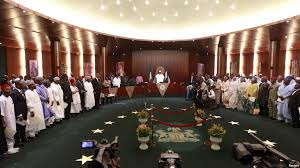
In politics, lessons are repeatedly taught and learnt. It is now left for those involved to modify their gains and loses to suit the situation they eventually find themselves.
Regrettably, the laws of Niccolo Machiavelli have all along been wrongly applied in this clime.
After the Peoples Democratic Party(PDP) convention in 2003, Chief Barnabas Gemade made spirited attempts to be adopted as the Presidential candidate of the United Nigeria Peoples Party(UNPP), but failed. This was Chief Gemade's fall back option, when his future in the PDP became uncertain.
Indeed, Chief Gemade was the backbone of the UNPP, in his home state, Benue, even though he was a card carrying member of the PDP. Not surprisingly, meetings were held in his home, with Chief Gemade in attendance. Of note, is that is followers held him in high esteem.
Curiously, it was discovered that the former PDP National Chairman, contested the Presidential primaries, alongside, Chief Olusegun Obasanjo, with the intention to use same as a bargaining chip to persuade the then President to compensate him with a 'mouth watering' political appointment. This did not sail through.
Indeed, double standards, as a means to an end in politics has become a unique brand in Nigerian politics.
Chief Gemade began losing his followers, after he abandoned Senator Daniel Saror, who he successfully convinced to let go of his senatorial ambition to contest for the Benue governorship seat on the platform of the UNPP.
To be extra sure that Senator Saror abandoned his ambition, Chief Gemade boosted his morale financially and that was how Senator Saror was able to purchase the UNPP nomination form for a whooping N2 million.
Interestingly, at the Swange cinema hall, Makurdi venue of the governorship primaries, Chief Gemade, with the financial backing of a political money bag, Usman Abubakar(a.k.a Young Alhaji) influenced the leadership of the UNPP in the state to adopt Mike Mku, instead of Senator Saror as the party's Gubernatorial candidate.
Already, aspirants for elective positions in future elections are aligning and re aligning, while hinging their intentions on optimism.
Indeed, a sizable number of these aspirants rely solely on optimism and money(for the money bags), as a strategy to hoodwink their competent opponents to the bargaining table, with hope that rewarding agreements would be made.
With this in mind, the average Nigerian, contending with insecurity and economic hardships, brought about by bad governance, is of the hope that the same quality of political office holders, presently on display, would not re-emerge to torment and torture all and sundry in a new dispensation.



